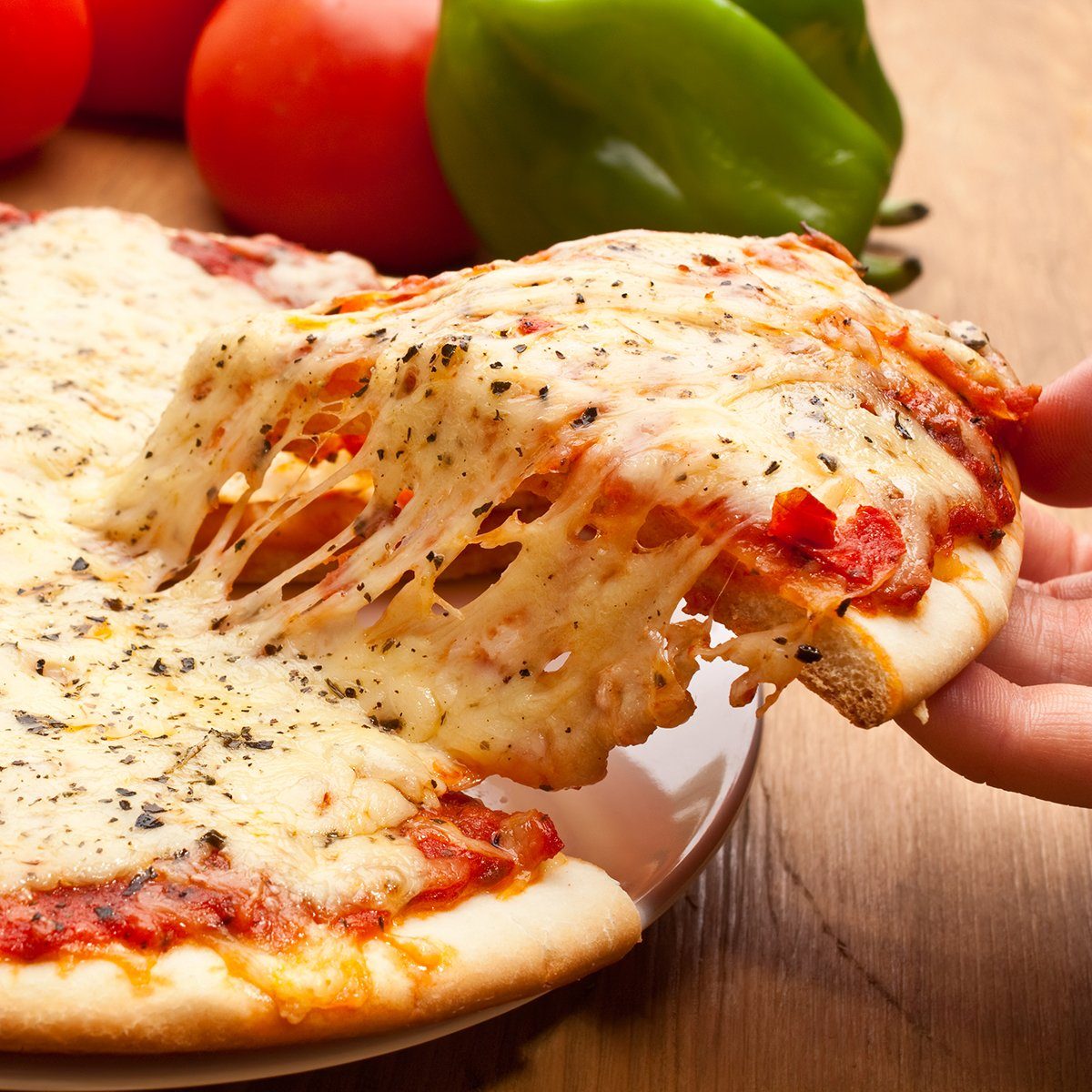
The most popular pizza topping isn’t what you think
Cheese pizza is a classic—but despite popular belief, it isn’t actually the most popular pizza topping. Instead, the honour belongs to pepperoni, followed by mushrooms, onions and sausage, according to Foodler.
You won’t be able to resist these crazy new pizza toppings!
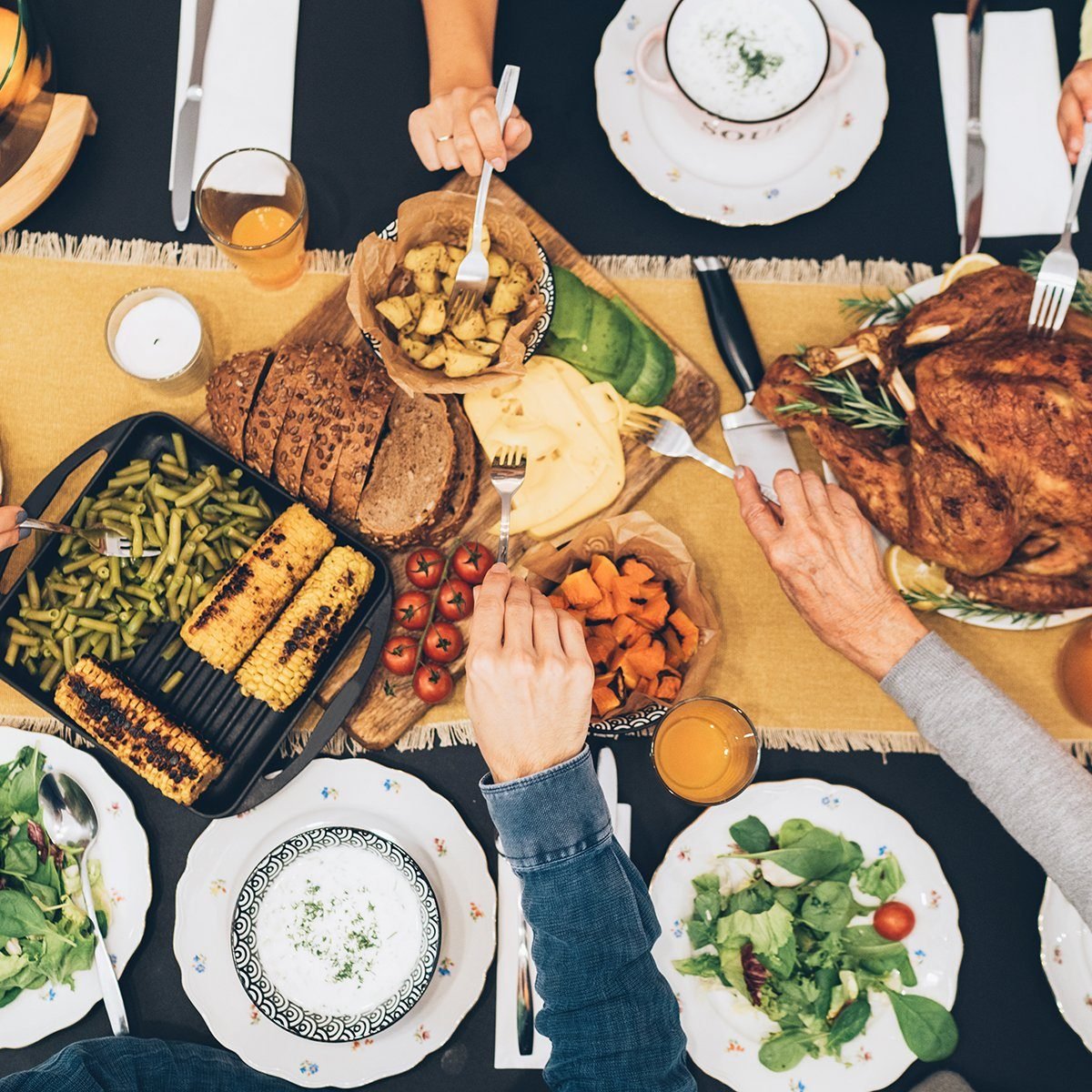
Americans eat nearly 2,000 pounds of food a year
You’re probably thinking, “There’s no way a person can eat 2,000 pounds of food in a year.” According to economists at the USDA, however, it’s just four pounds short of what the average American consumed in 2011. Of those, only 273 pounds consumed were fruit, and 415 were veggies!
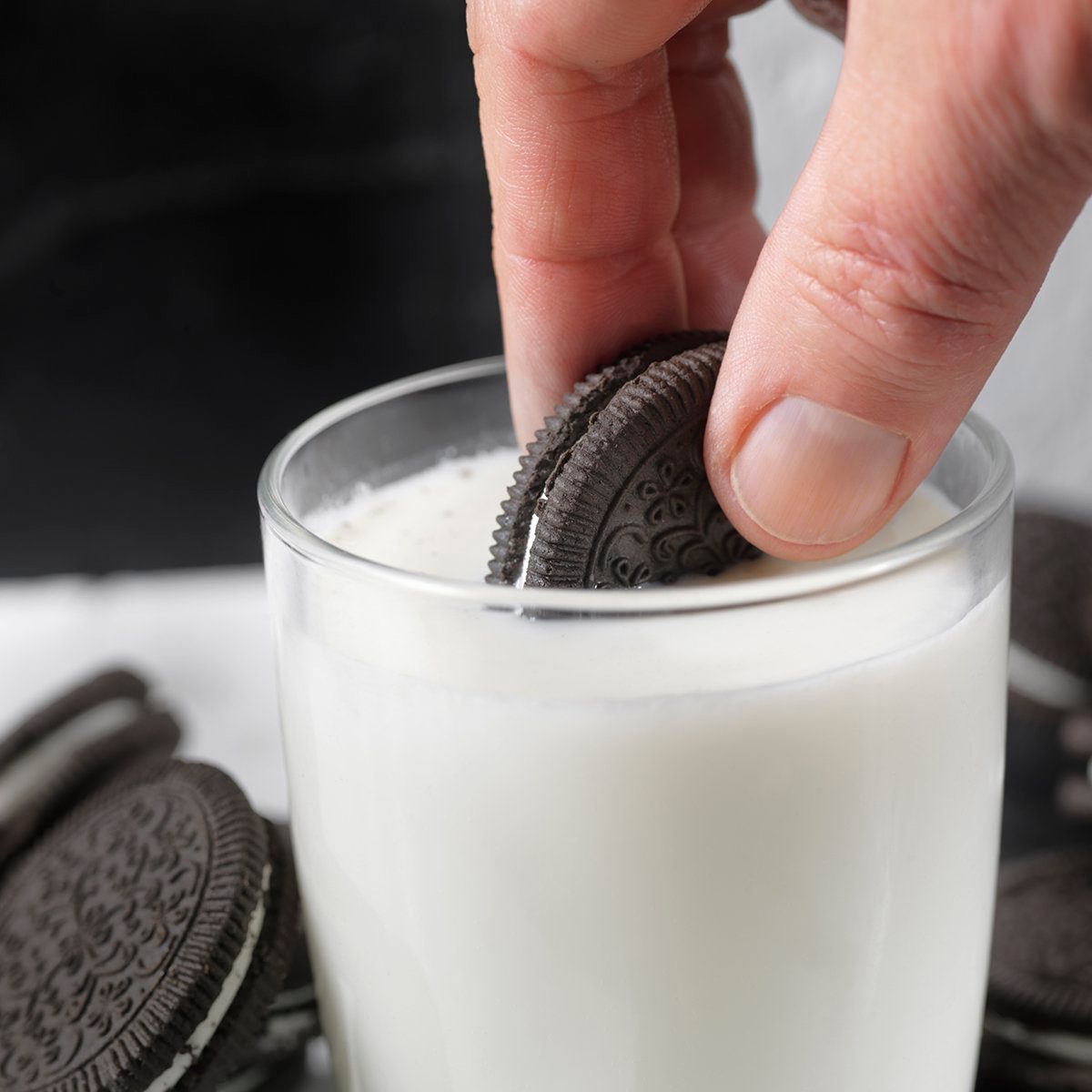
Oreo cookies are actually not vegan
Despite the rumour that’s been flying around the past few years, this famous cookie isn’t actually vegan-friendly. According to Oreo, while milk and eggs aren’t listed on the ingredient list, the cookies could possibly come into contact with milk during production, and therefore should be avoided by vegans.
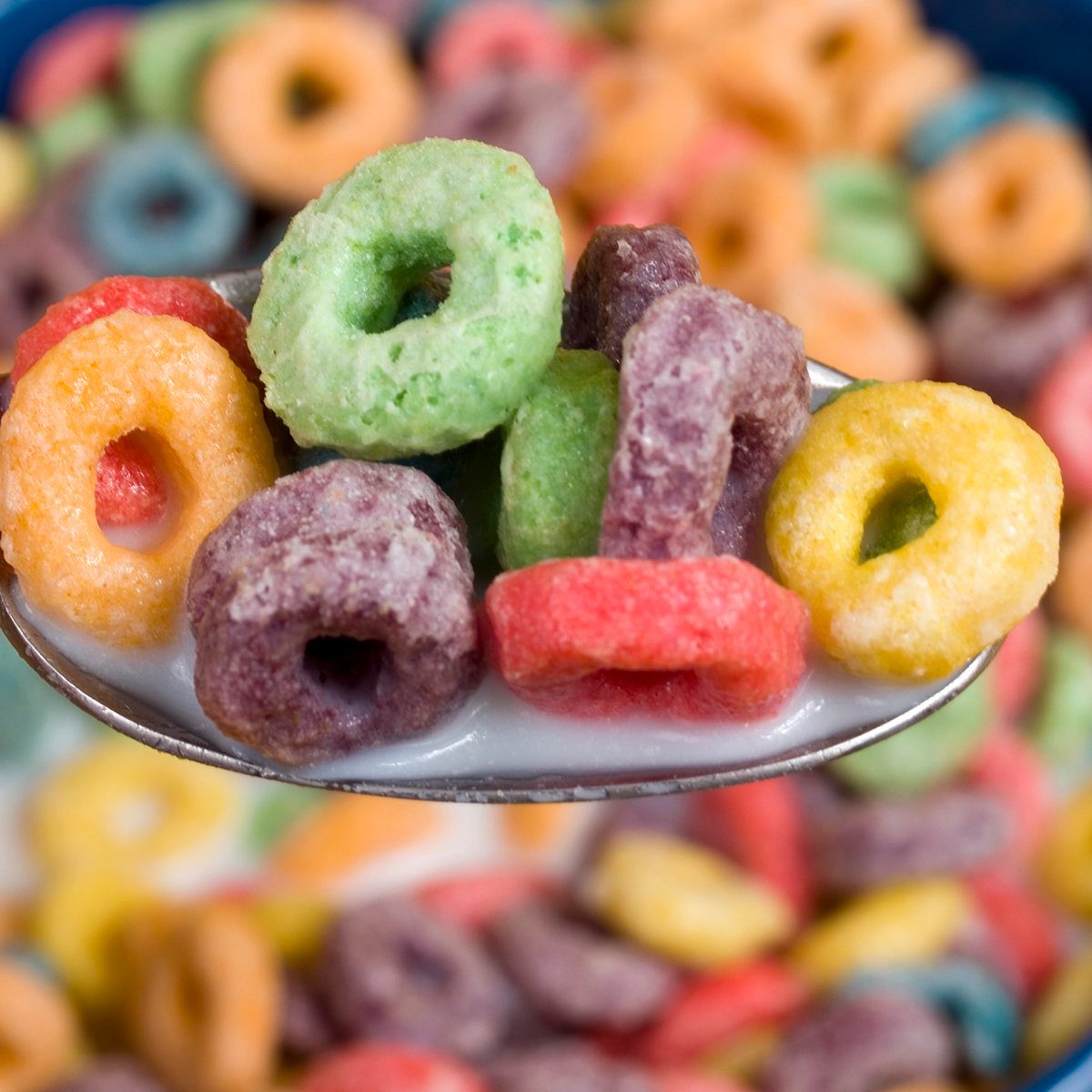
Froot Loops are all the same flavour
If you think your palate is so refined as to notice a distinct flavour in each of the differently colored Froot Loops, we’re sorry to break it to you—they all taste the same. They’re actually a “blend of fruit flavours,” so no one flavour is more noticeable than the rest.
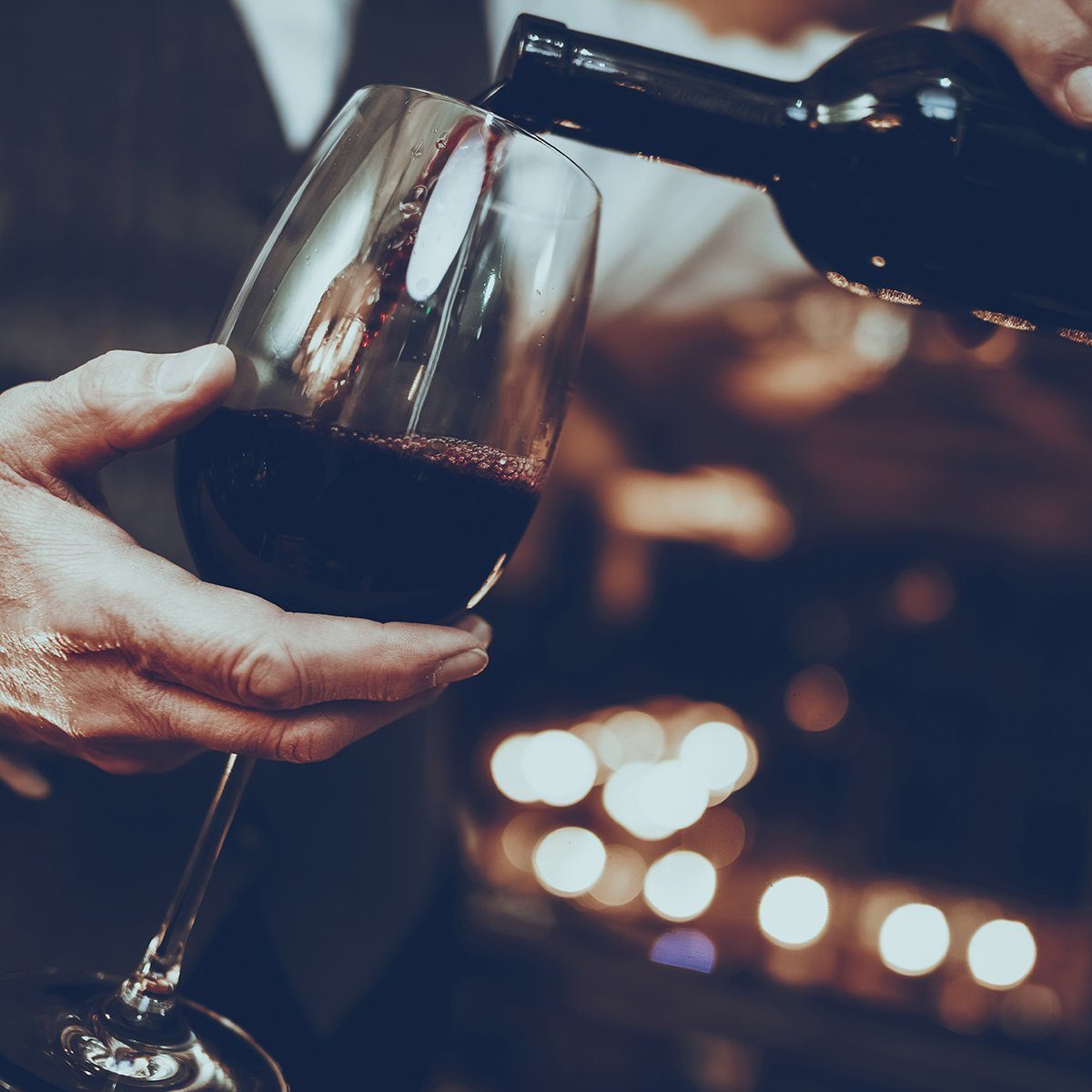
Wine can be used to fuel a car
Don’t try this one at home! In an effort to find sustainable alternatives to traditional oil, Prince Charles had his vintage Aston Martin rigged to run on wine, and claims that it runs better and more powerfully while on the spirit—plus, it smells better while it’s driving, too.
Impress your friends with these surprising world facts!
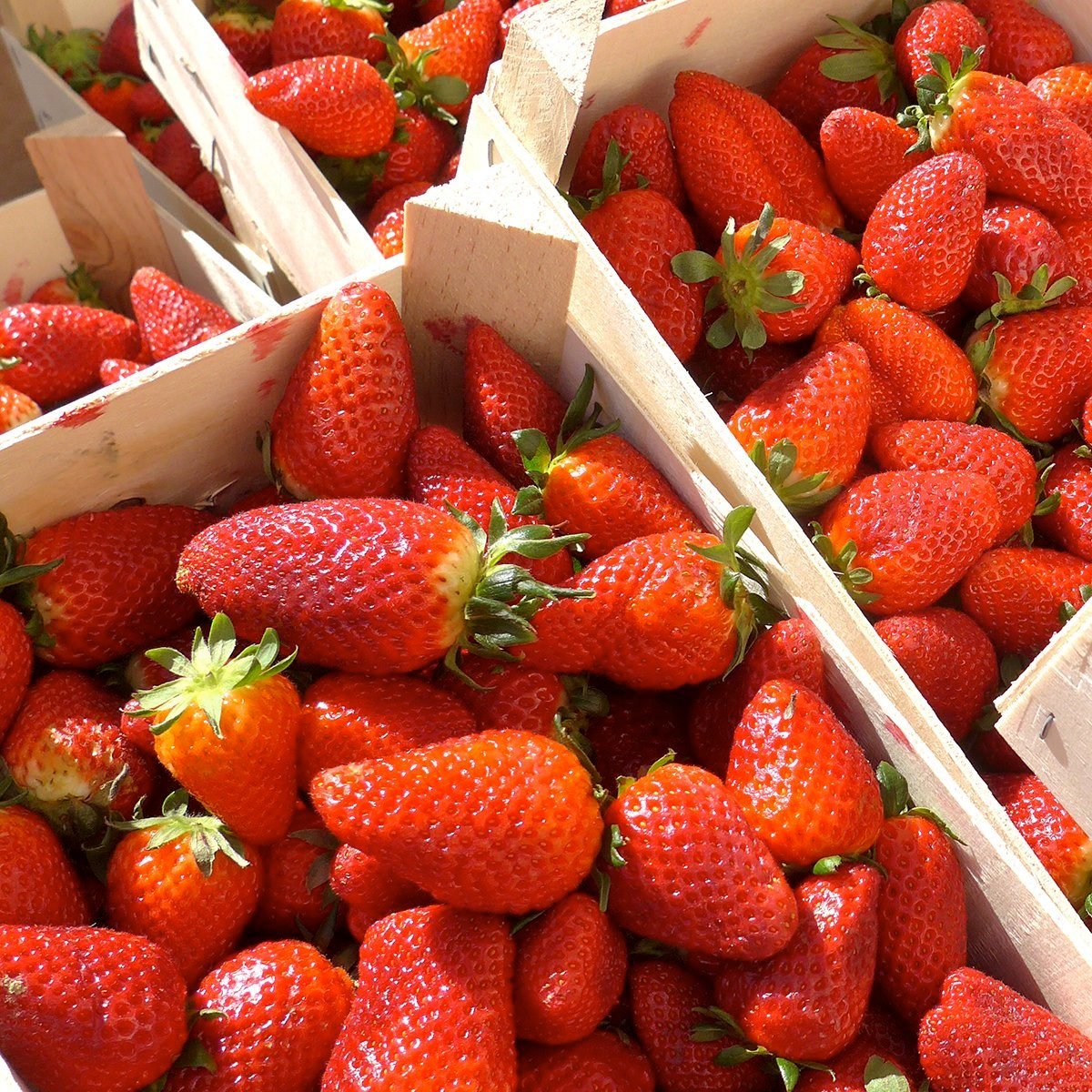
Watermelons are berries, but strawberries aren’t
Common sense says that fruits with the word “berry” in the name are, of course, berries. But that’s not exactly the case, since the word’s scientific definition means a berry must have an outer skin, a fleshy middle and seeds on the inside, not the outside. So strawberries don’t make the cut—but watermelons and bananas do!
Discover the things you never knew actually had names.
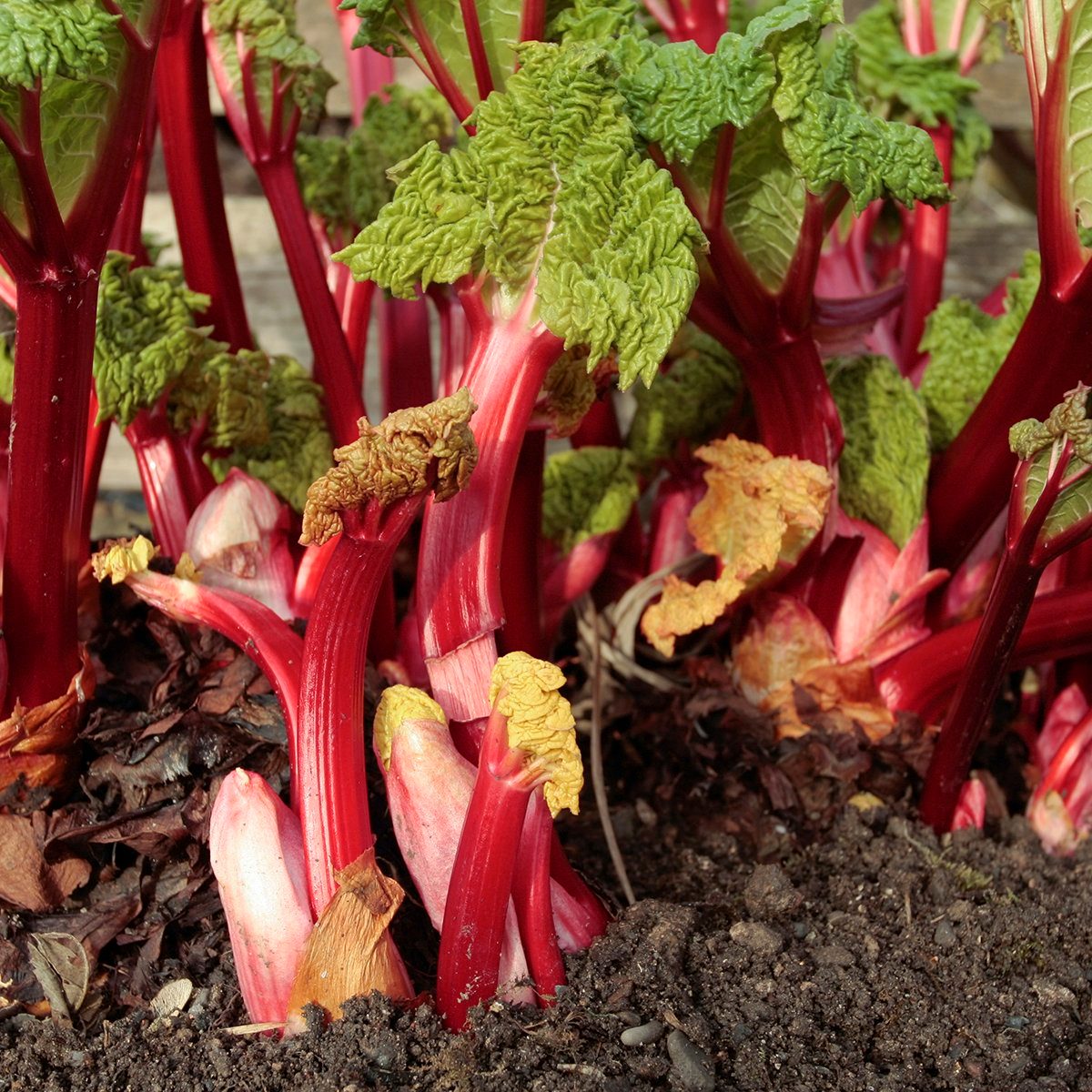
Rhubarb grows so fast, you can hear it growing
Rhubarb has the ability to grow as much as one inch per day, a rate so fast that you can actually hear it creak and pop as it gets bigger. Scientists say that growing forced rhubarb makes it sweeter!
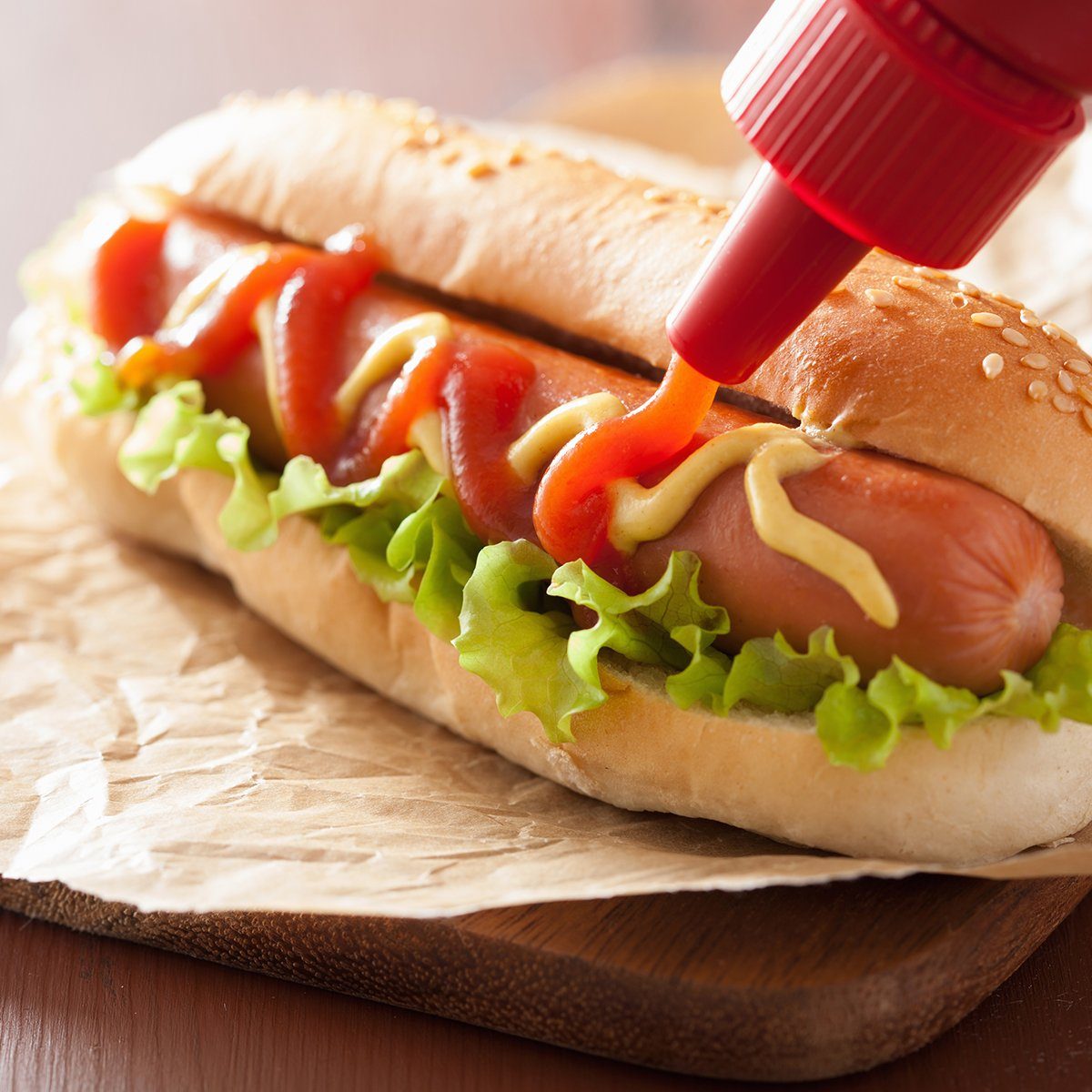
Shaking ketchup changes it on a molecular level
If you’re sick of thick, goopy ketchup that barely makes it out of the bottle, there’s a simple solution: Shake it. Shaking ketchup turns round tomato particles into a thinner ellipses shape, making it 1,000 times runnier and the perfect consistency for squirting onto fries, burgers, and all your favourite meals. (According to many hot dog experts, however, putting ketchup on a hot dog is a big no-no.)
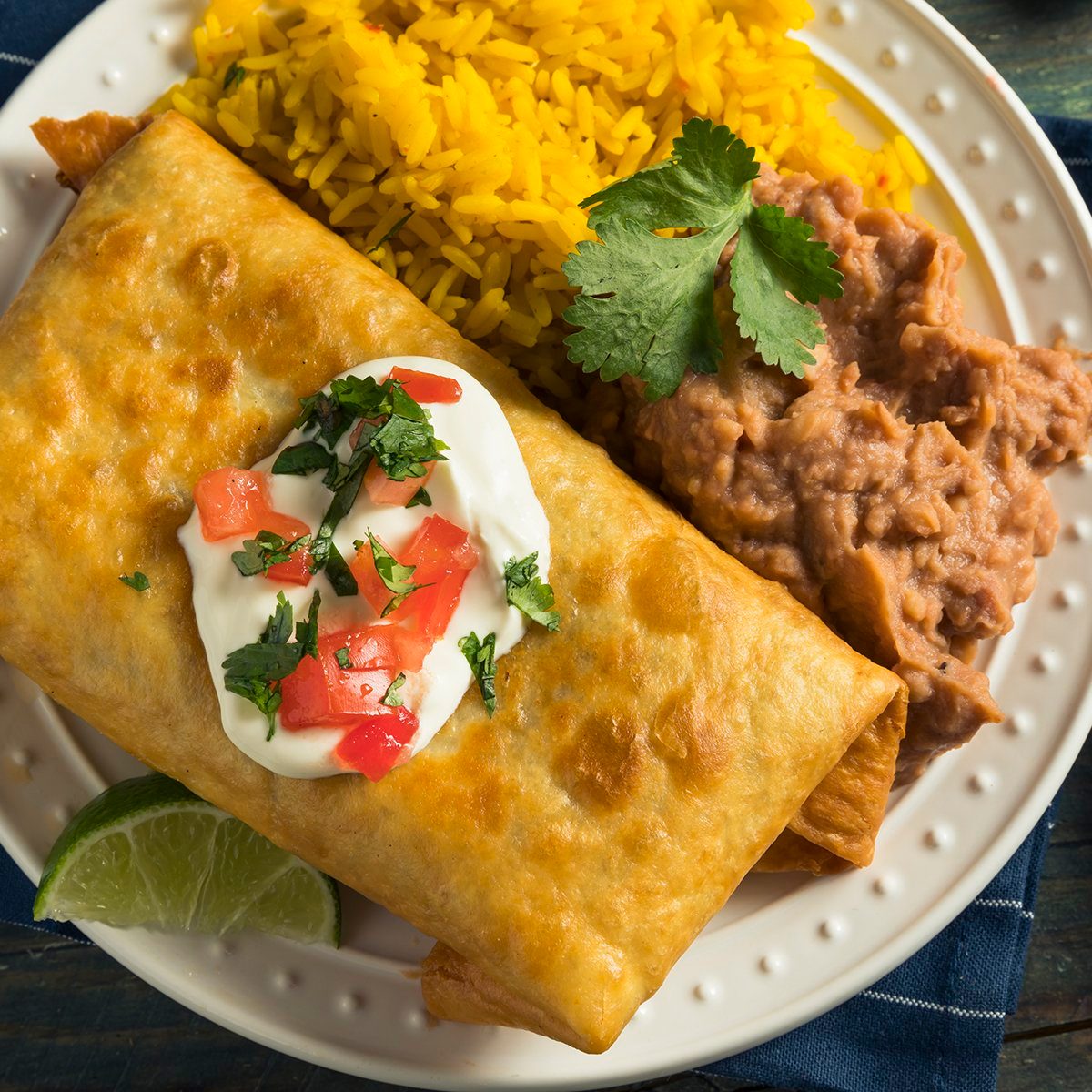
The chimichanga was invented in America
The chimichanga is among our go-to choices when dining at Mexican restaurants—but it turns out, it’s not completely Mexican at all. It was most likely invented in a Mexican restaurant in Tucson, Arizona, and translates from Spanish as “watchamacalit” or “thingamajig.”
Find out why the founder of Mother’s Day regretted her invention.
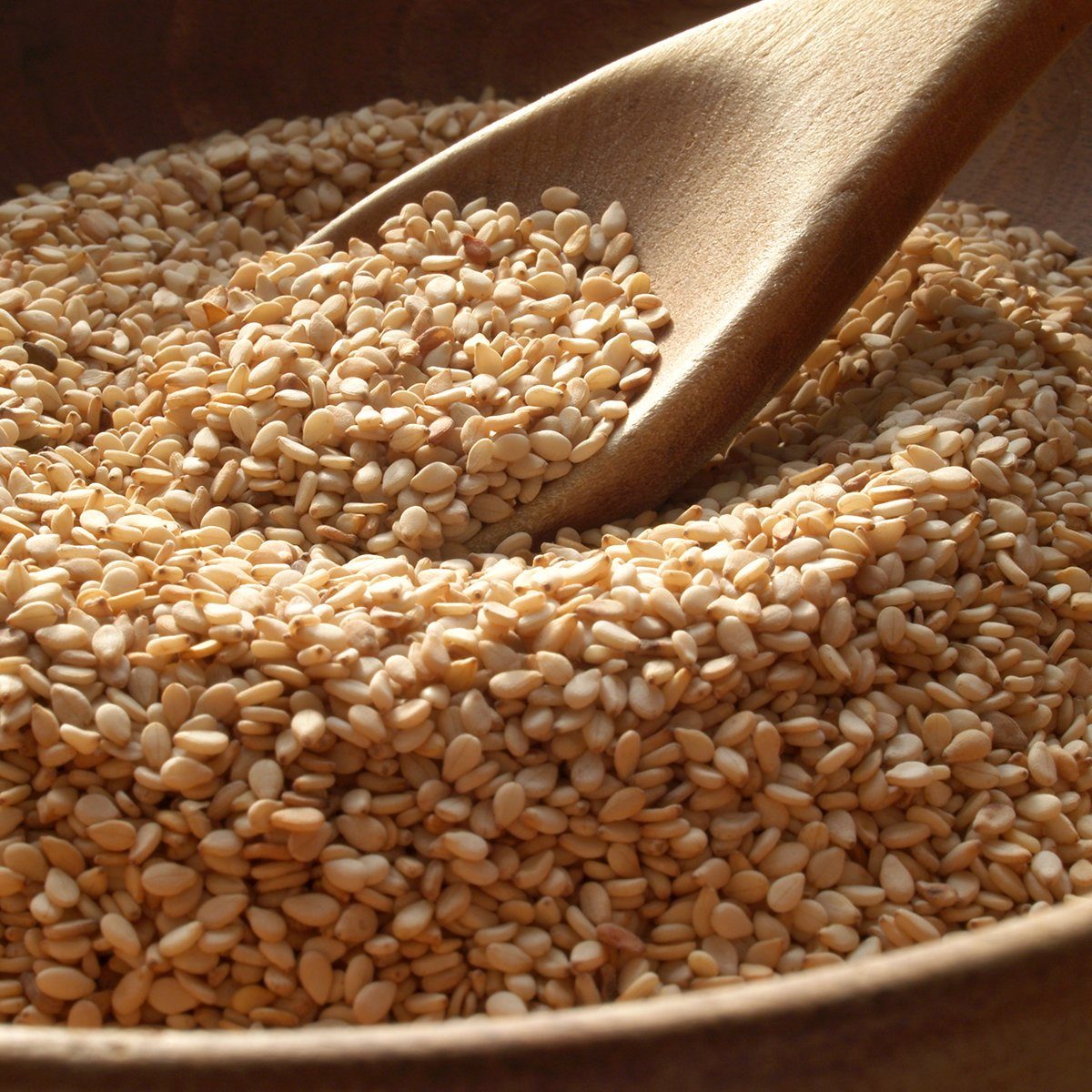
Sesame seeds were believed to hold magical properties
We all love a few sesame seeds sprinkled on our burger buns—but did you know they were once worth more than gold? While there’s no denying that sesame seeds offer many health benefits, in some cultures of old they were considered to bring good luck and fortune, and thus were one of the most valuable items on Earth.
Check out these lucky New Year’s traditions from around the world!
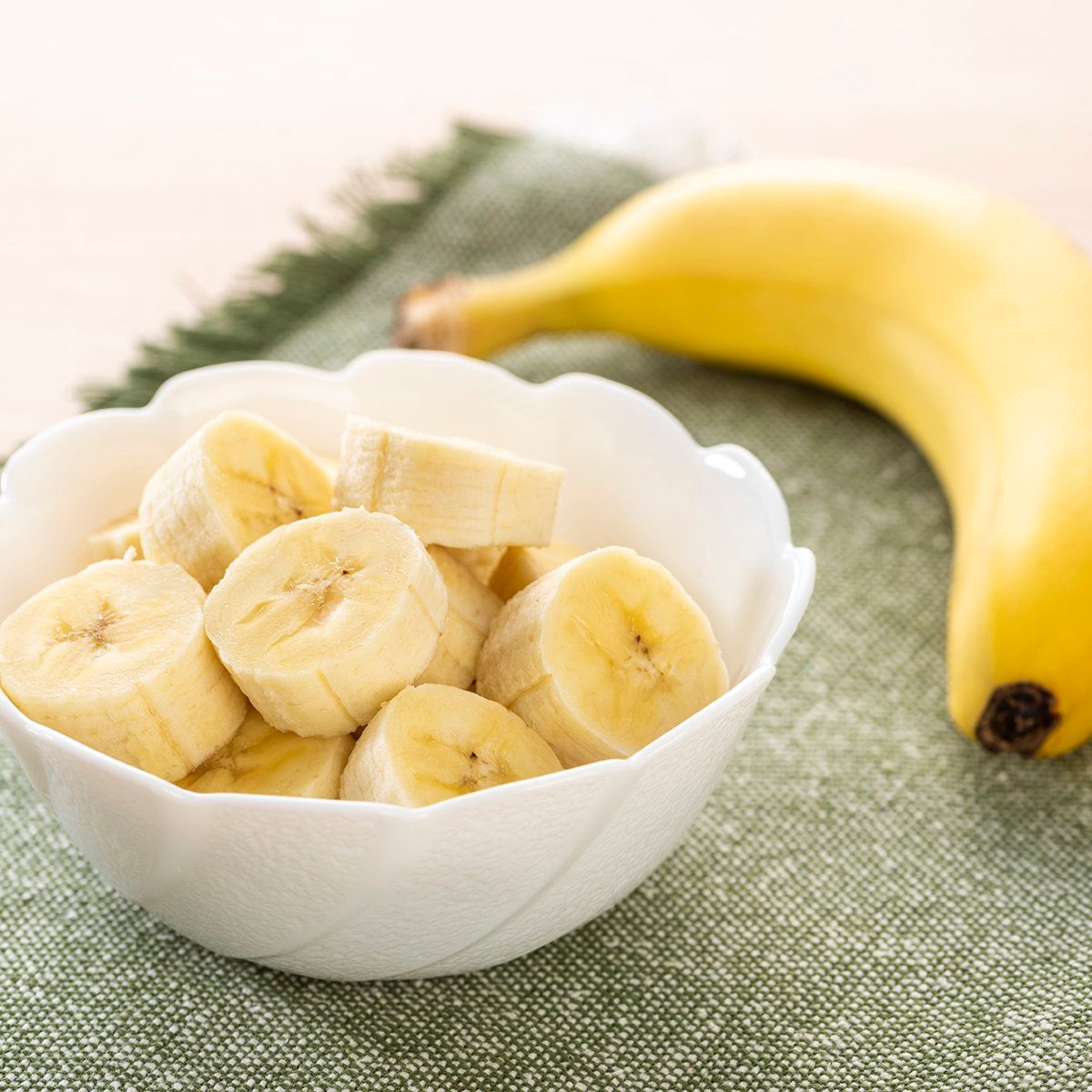
Banana flavouring isn’t based on real bananas
Have you ever bitten into a banana-flavoured candy, only to notice that it doesn’t exactly taste like the real thing? You’re not alone. There’s a theory that banana flavouring was based on the extinct Gros Michel variety of banana, though since it’s no longer commercially grown, we’ll likely never know.
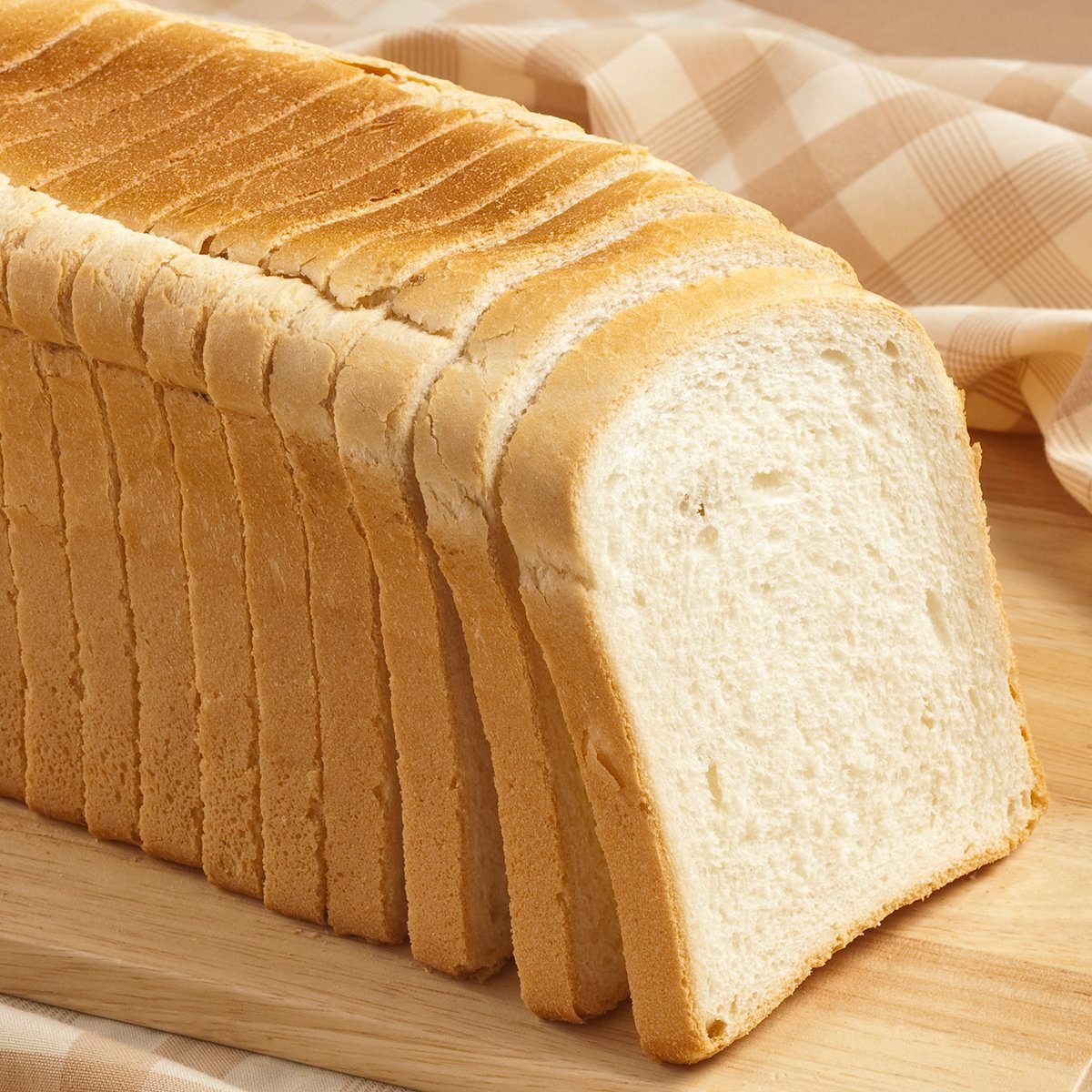
Sliced bread was banned by the FDA
Back in 1928, machine-sliced bread was first introduced, changing the world as we knew it. But only 15 years later, in 1943, it was banned by the FDA for using too much plastic that could be used for the war effort instead. The ban only lasted three months, though, as the public outcry it caused was too great.
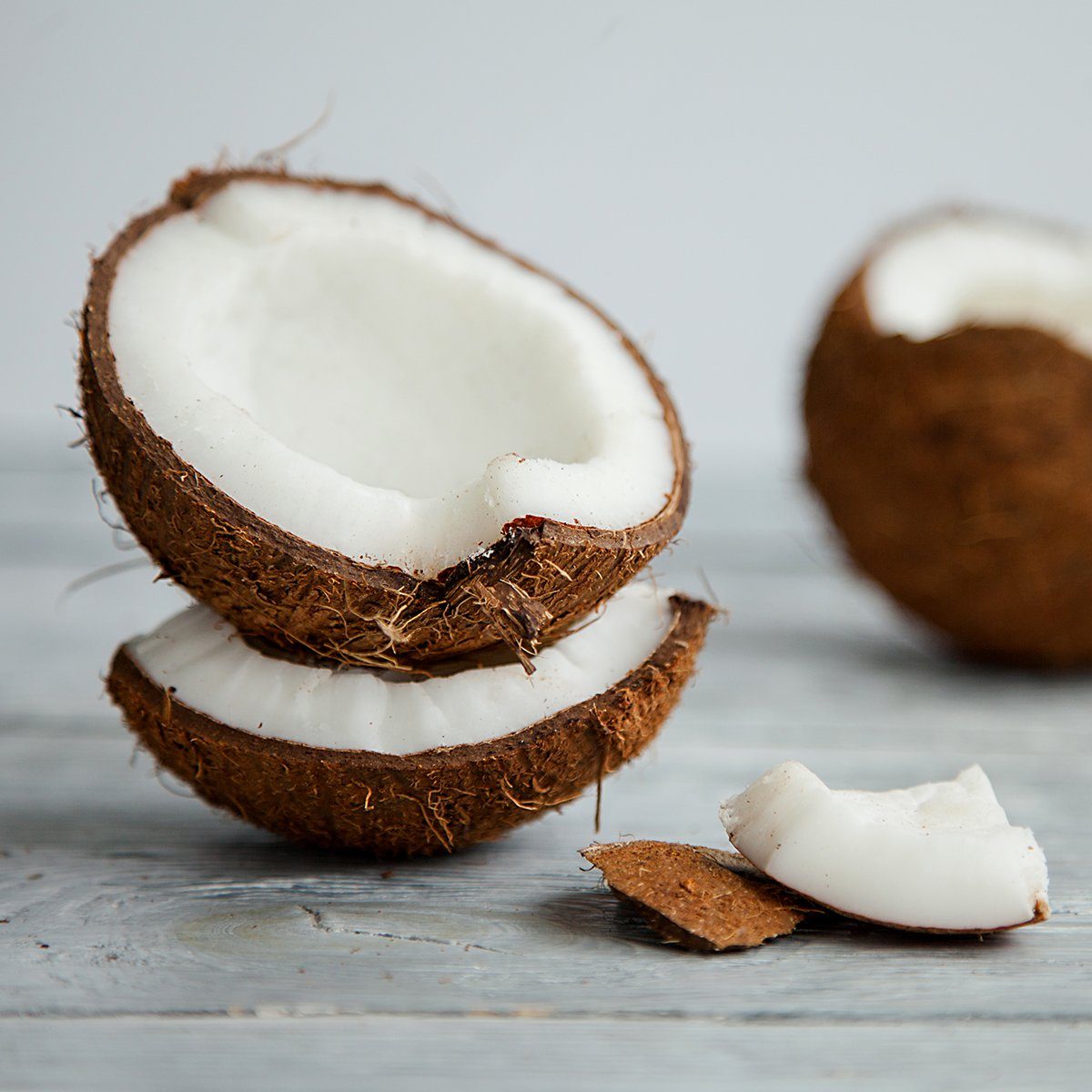
More people die by falling coconuts than sharks
Sharks get a bad rap, but in reality, you’re much more likely to be finished by a coconut than the aquatic predator. Each year, about 150 people are killed by falling coconuts, compared to only 10 by sharks.
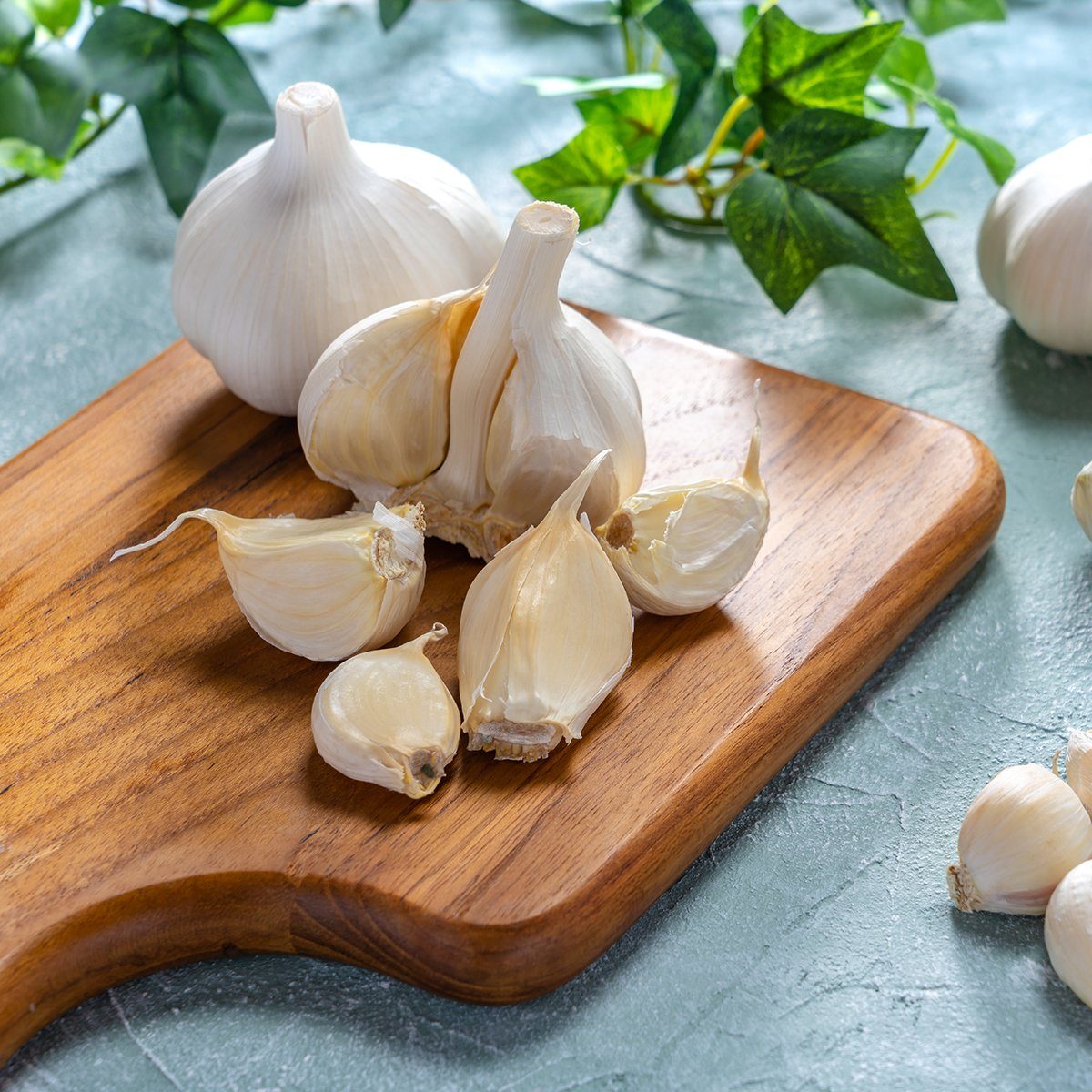
You can taste garlic with your feet
Garlic’s pungent smell can be attributed to a chemical called allicin. This is so powerful that it can be absorbed through your skin and into your bloodstream, reaching all the way up to your mouth and nose, where you’ll feel like you’re “tasting” it.
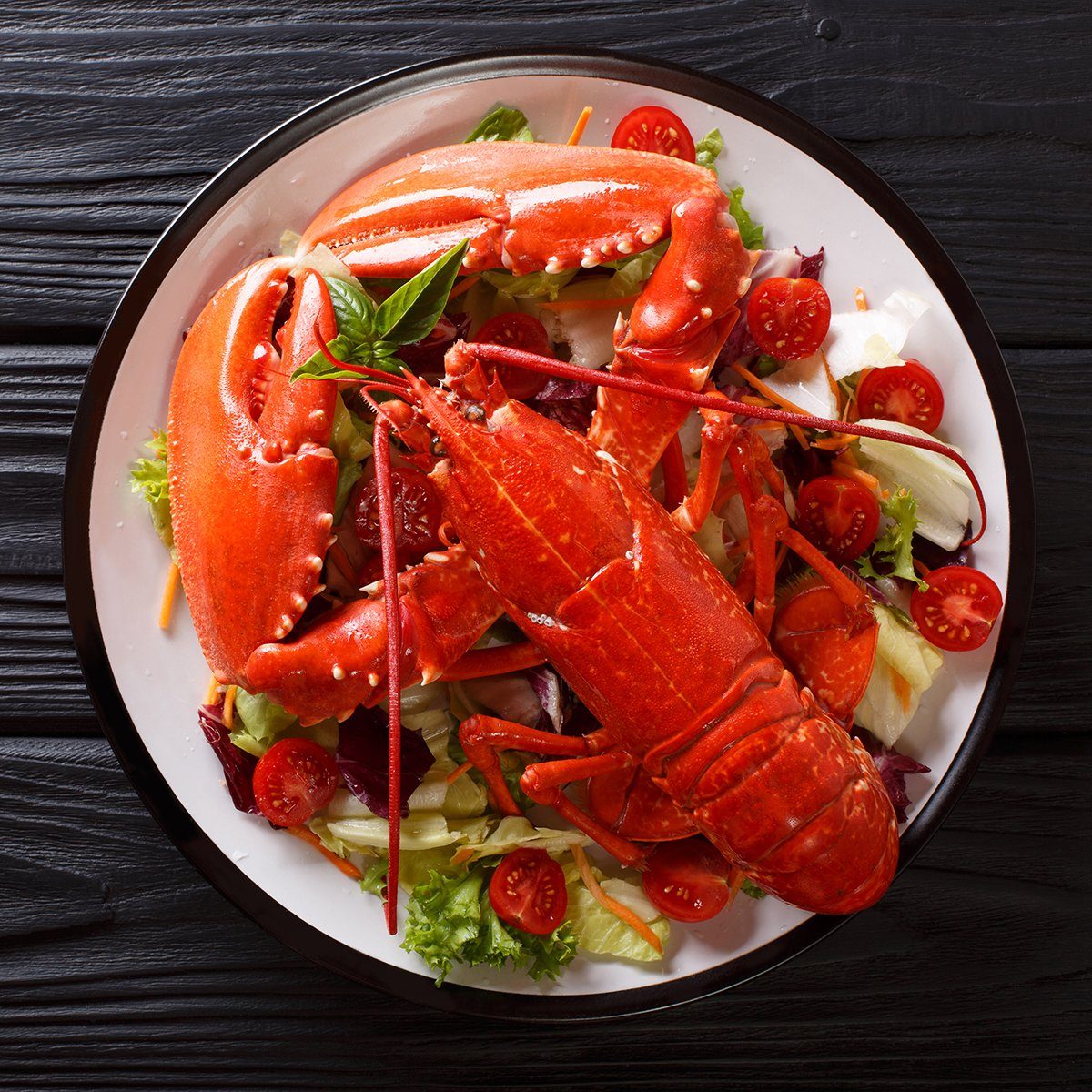
Lobster was once considered only fit to serve to prisoners
Today it’s a mainstay of upscale restaurant menus and celebratory dinners—but in the colonial era, the crustacean was so widely fished, and therefore cheap, that it was only fed to prisoners, slaves and children.
Here are more popular foods people hated eating 100 years ago.
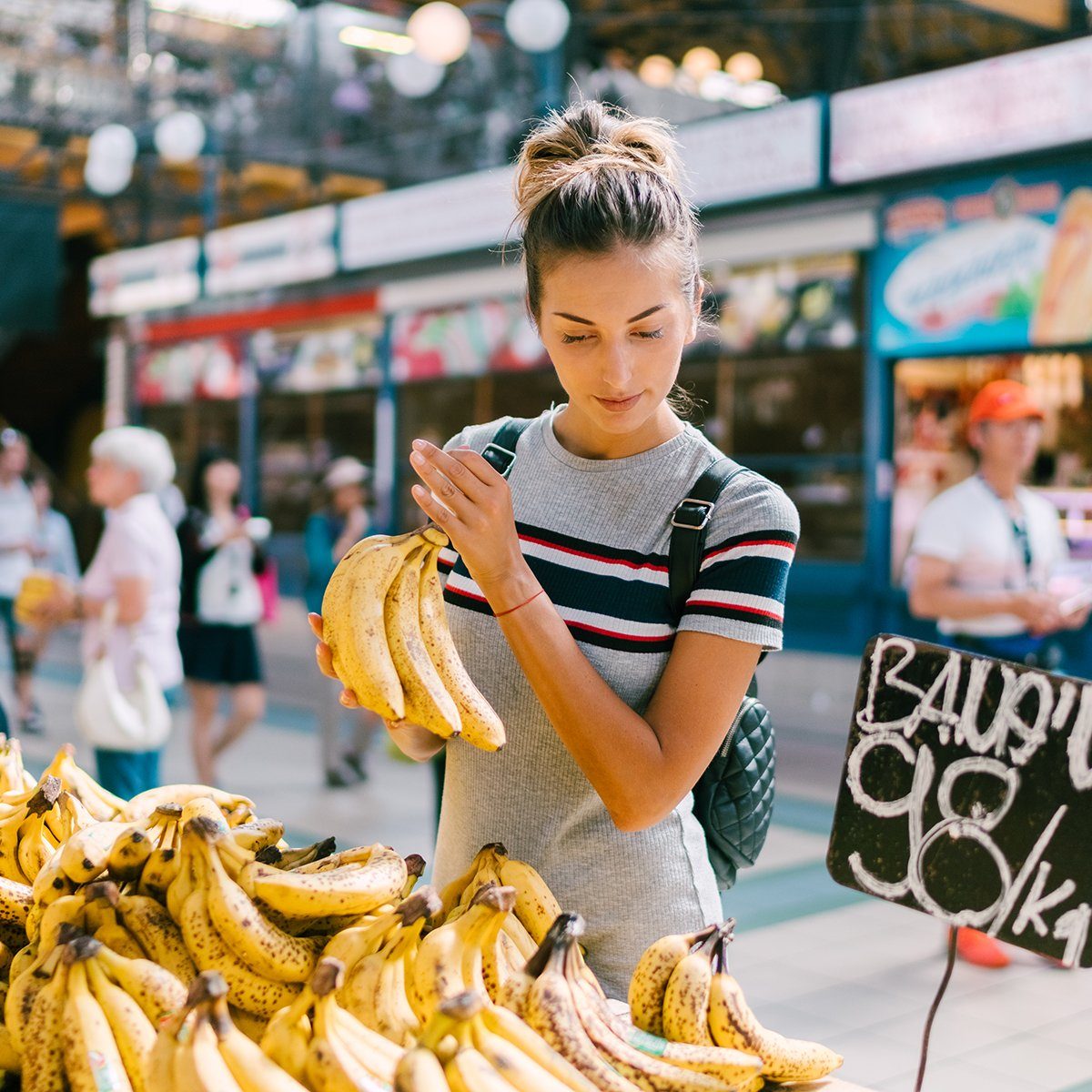
Humans share 60 per cent of our DNA with bananas
As it turns out, humans aren’t as unique as we thought we were. At least, not according to our DNA. We each have about three billion base pairs of DNA inside us, and much of our human genome is coded to function similarly to other organisms, meaning we’re about 96 per cent genetically similar to chimps and 60 per cent similar to the humble banana.
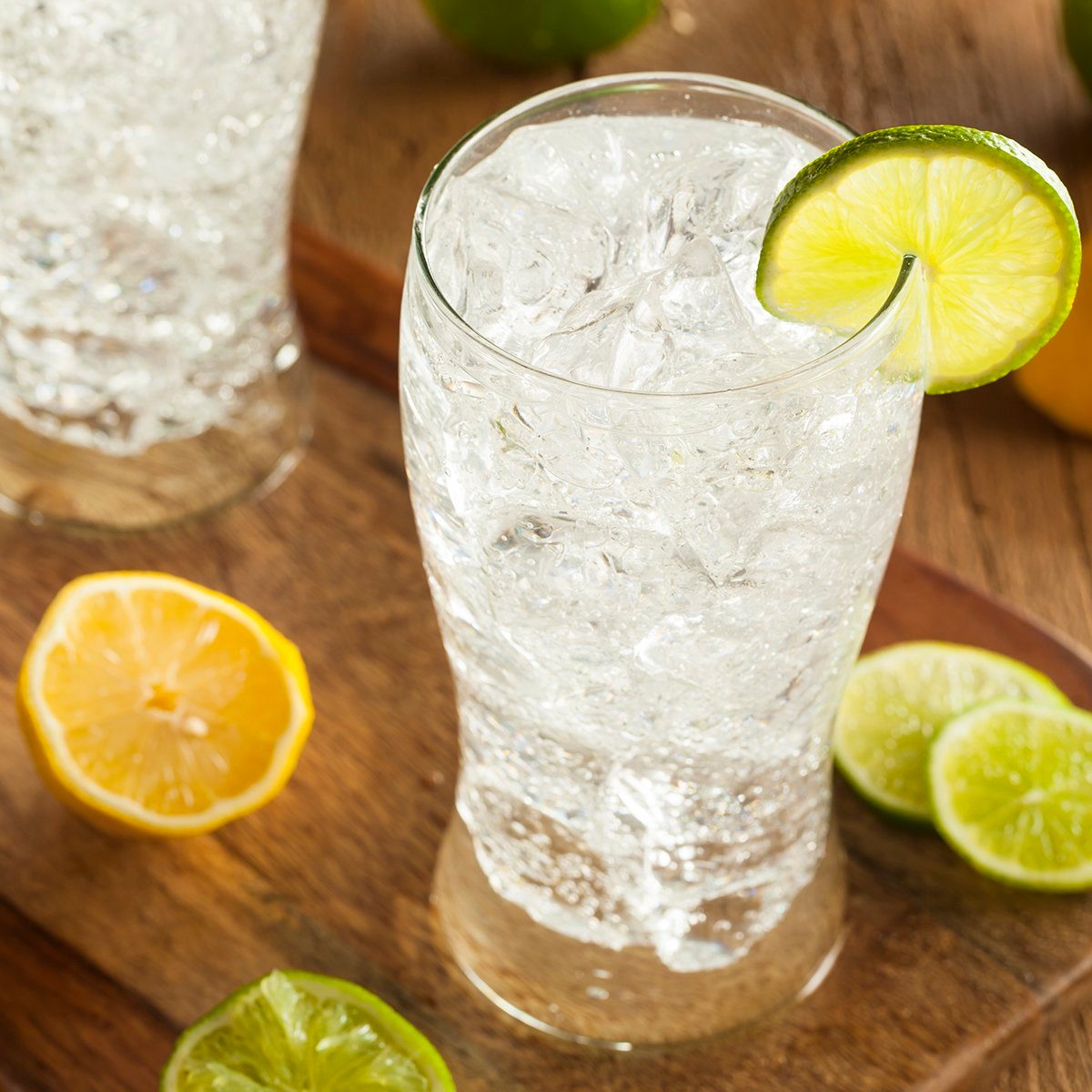
Mountain Dew is made out of orange juice
Orange isn’t exactly the first flavour you think of when sipping a refreshing Mountain Dew—but it’s actually listed third on the lemon-lime soft drink’s ingredient list!
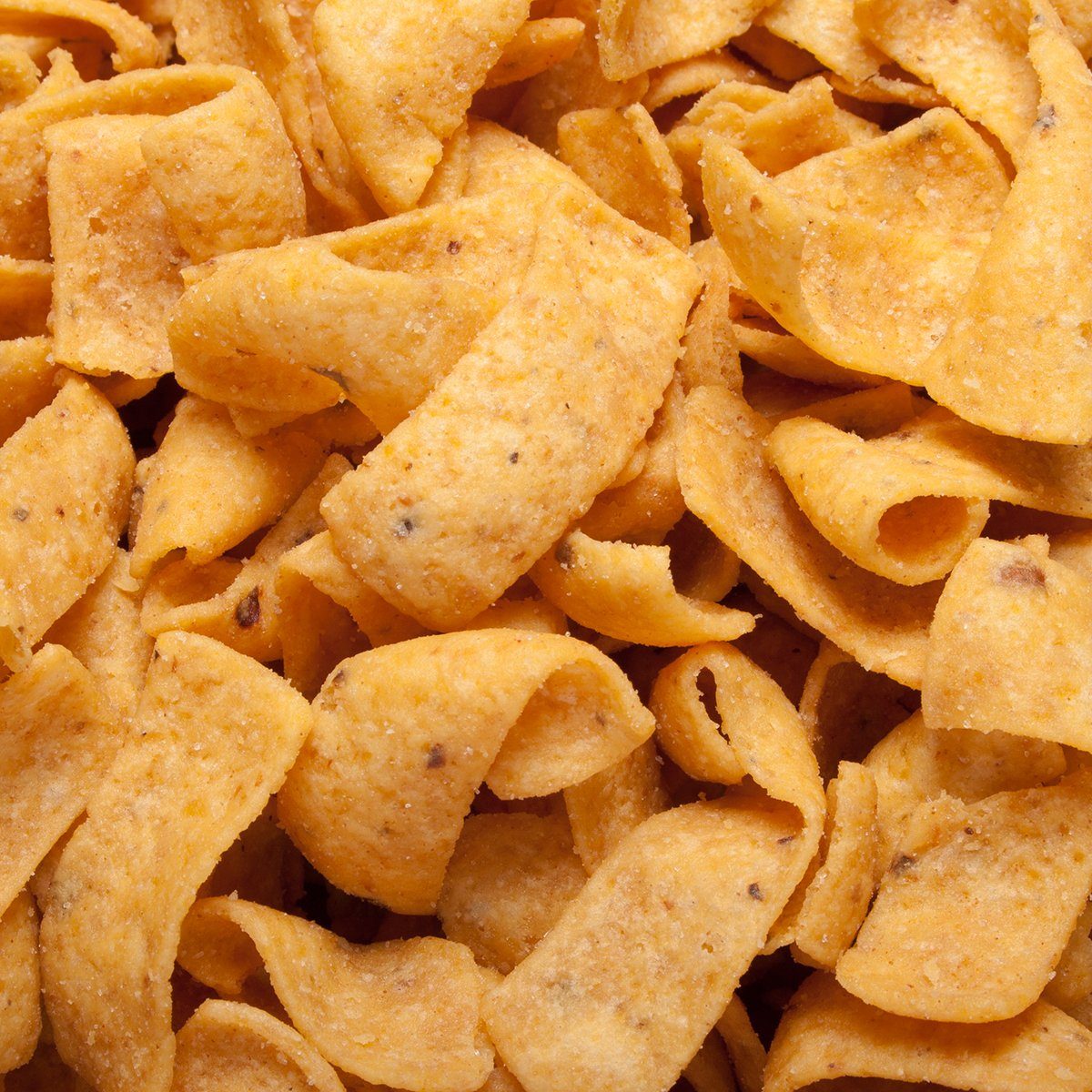
Fritos are made with only three ingredients
These days, we expect our junk food to be filled with unpronounceable ingredients to preserve and add artificial flavour. Fritos, though, are made with just three ingredients: corn, corn oil and salt. That’s it. Because the recipe is so simple, it’s hardly changed in the 80 years since its invention.
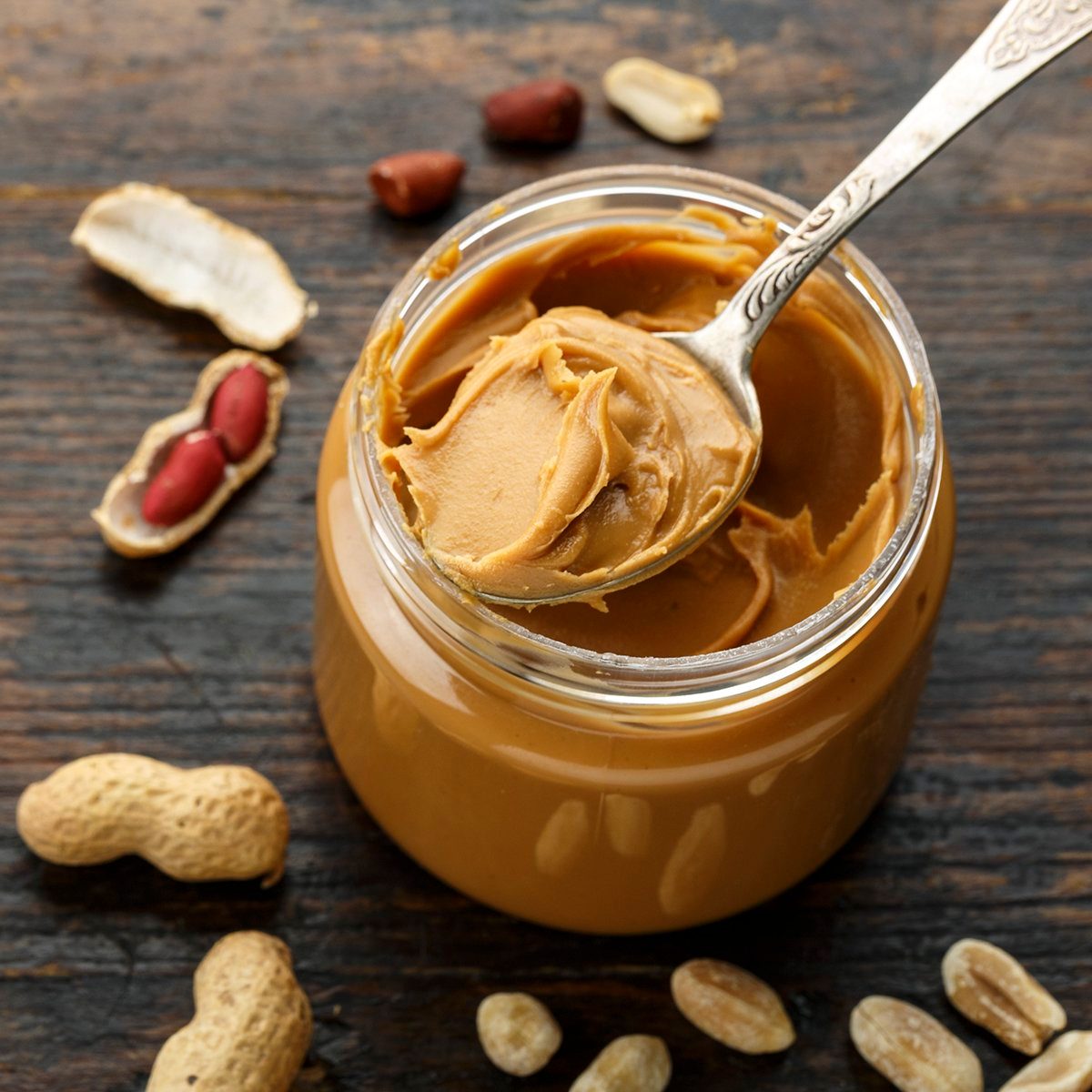
Scientists can turn peanut butter into diamonds
The key to naturally-occurring diamonds is temperature, pressure and carbon that’s up to three billion years old. But scientists are discovering that they can hack a shortcut using plain old peanut butter.
Discover the origins of the peanut butter and jelly sandwich.
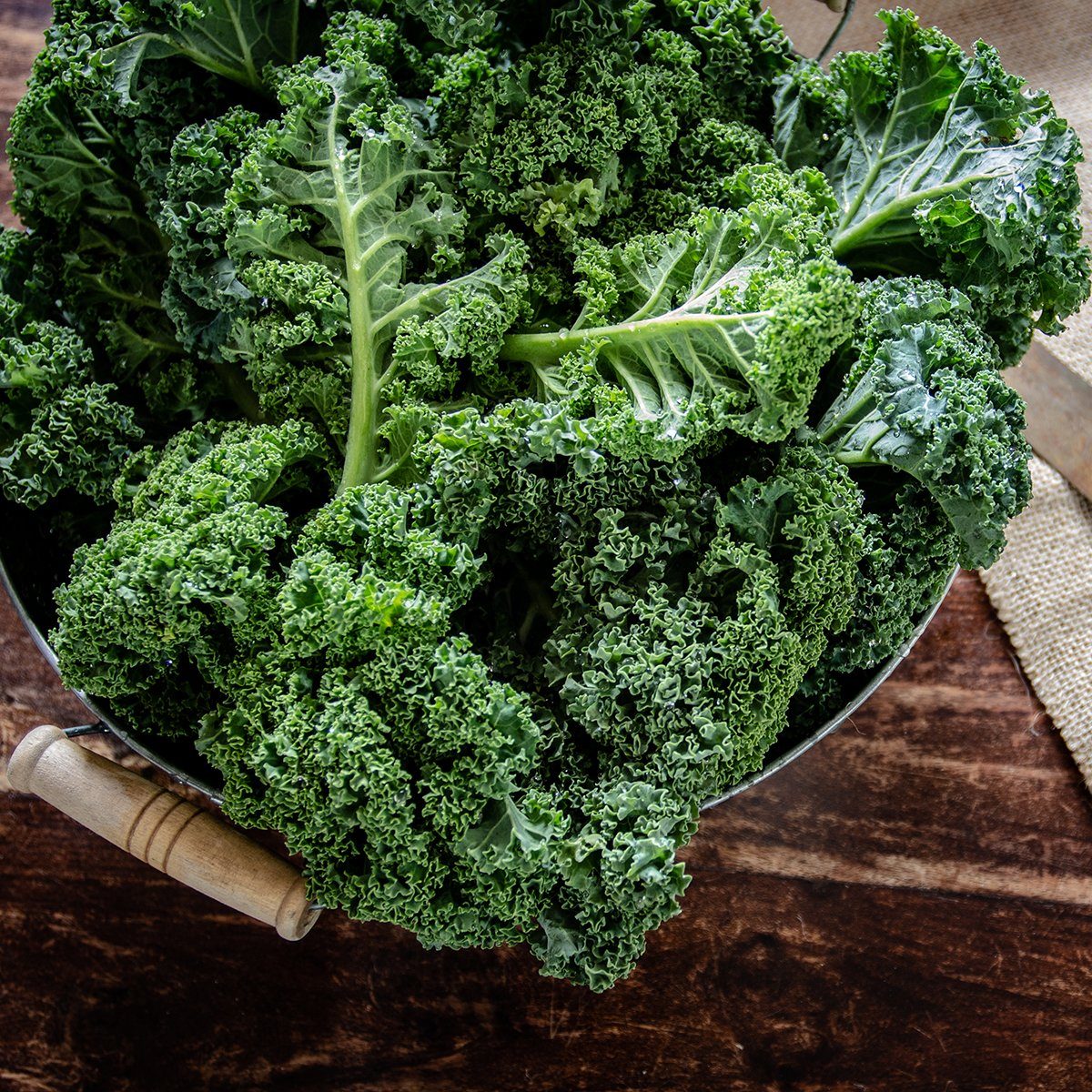
Pizza Hut was once America’s largest purchaser of kale
We now know kale as a highly nutritious superfood in everything from salads to chips to juices—but before the kale craze, its biggest buyer was Pizza Hut. Kale was used in the chain’s salad bars—but for decoration, not for eating.
This is the only way you should be reheating leftover pizza.
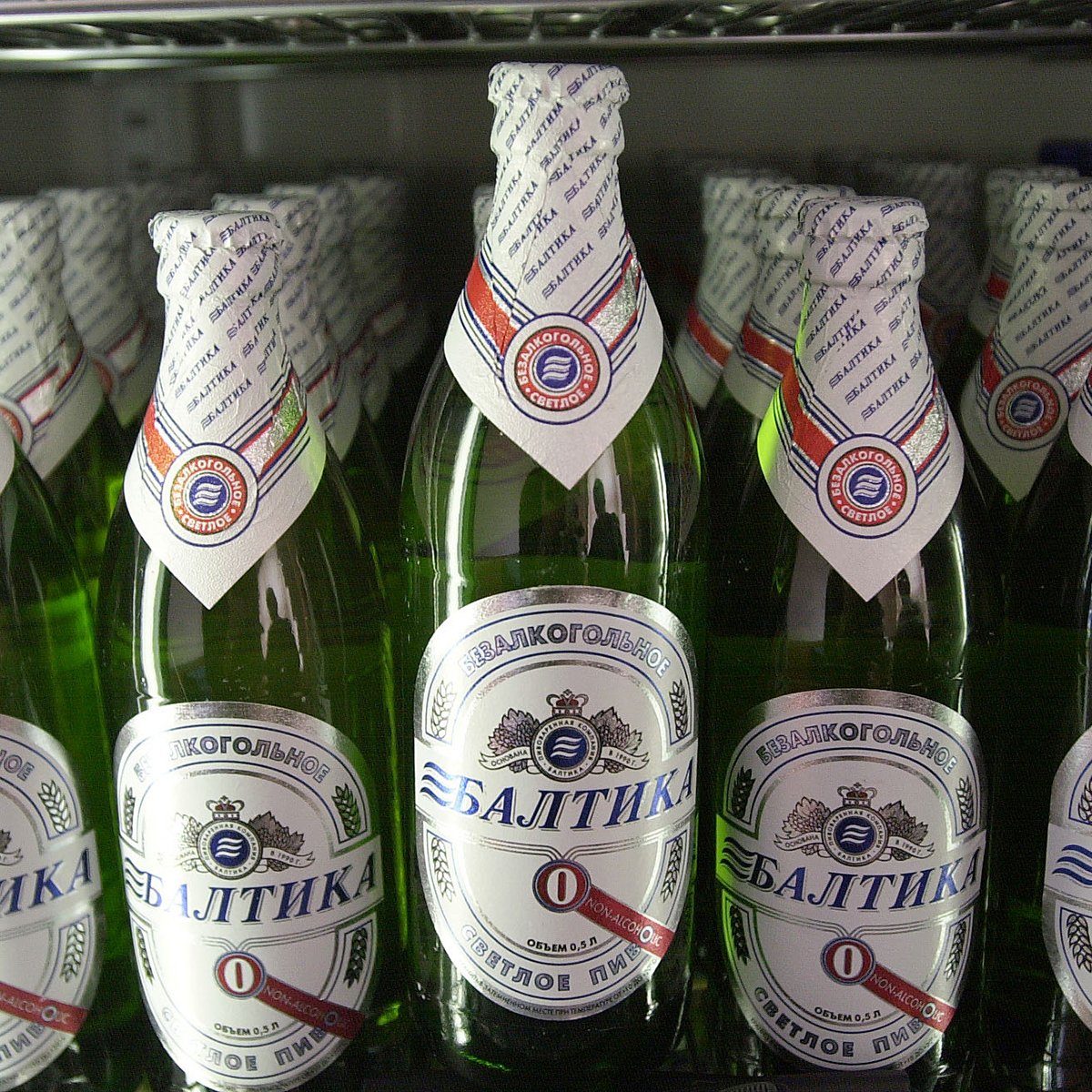
Until 2011, Russia classified beer as a soft drink
In Canada, it’s pretty widely understood that beer is an alcoholic drink. But up until 2011, Russian law stated that any drink with an ABV lower than 10 per cent was in fact considered a soft drink, and not an alcoholic beverage.
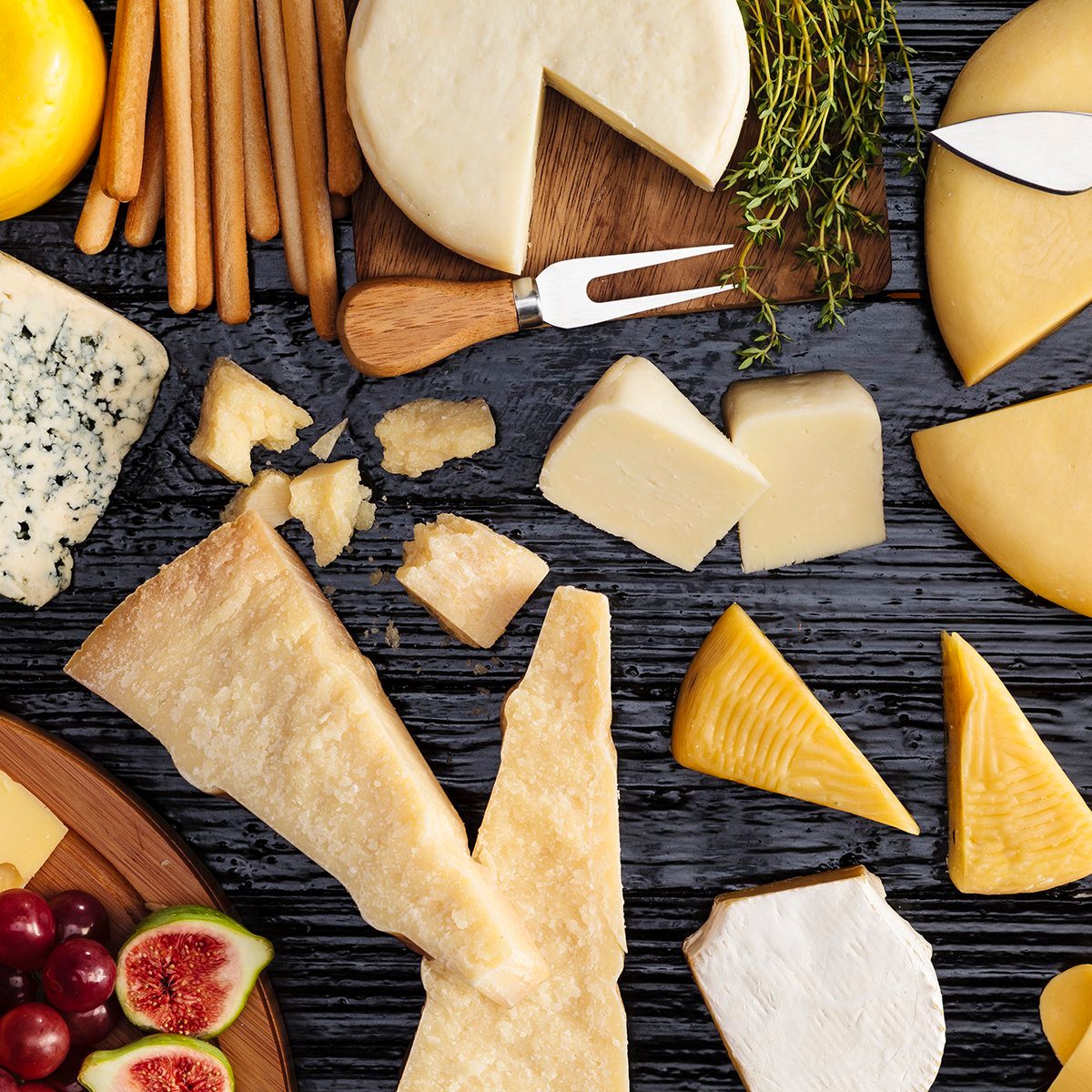
There’s a black market for cheese
In other interesting Russian food news, a ban on American food exports in that country in 2014 resulted in a surprising black market… for cheese. In just one case, Russian officials busted one smuggling ring attempting to transport tonnes of contraband cheese into the country.
We answer the age-old question: can you freeze cheese?
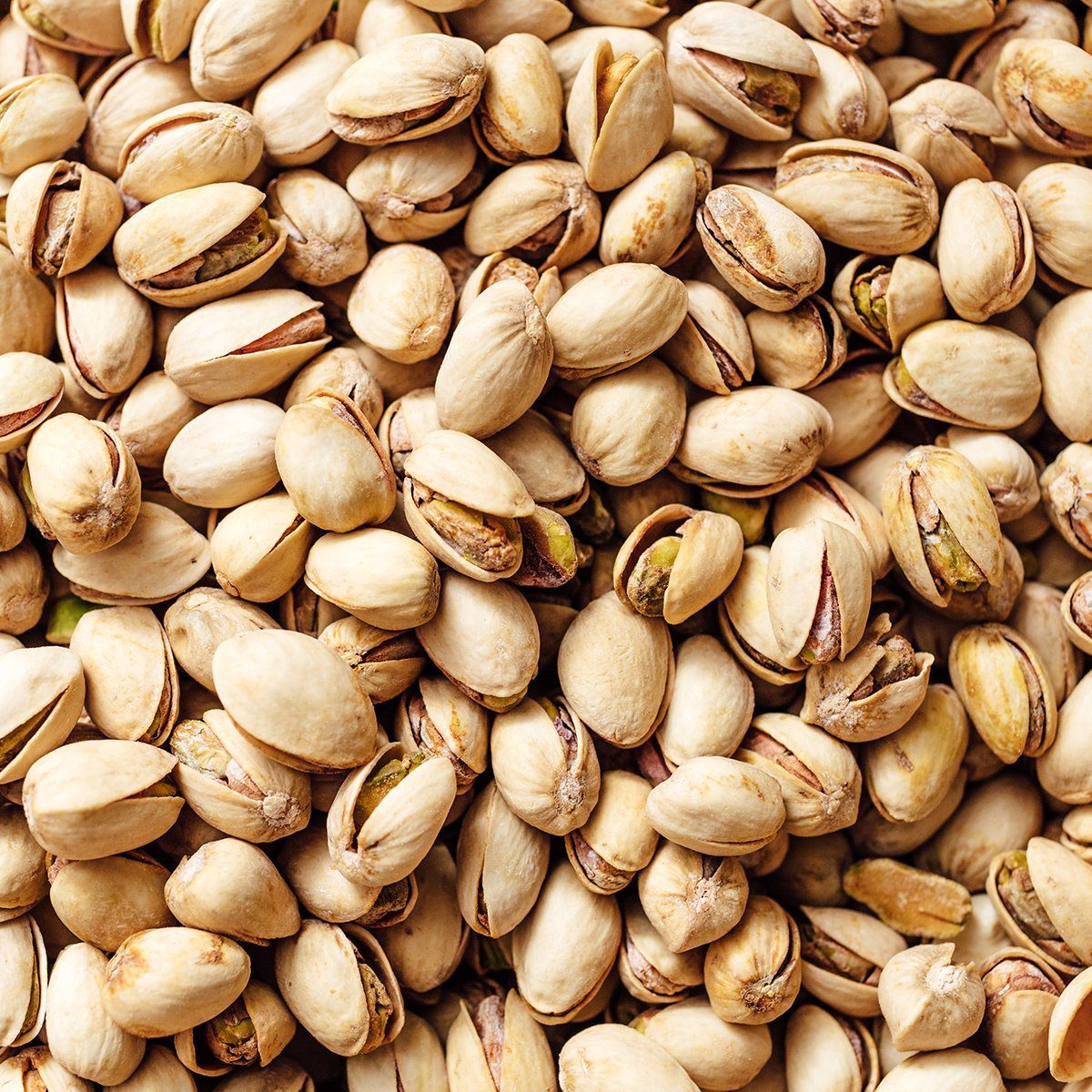
Raw pistachios can spontaneously combust
Due to chemical reactions within ripening pistachios, the cashew-family nut has been known to occasionally spontaneously combust—that’s right, randomly catch on fire. Don’t worry about any accidental fires in your home, though: the reaction is only likely to occur in serious mass quantities, like when in transportation.
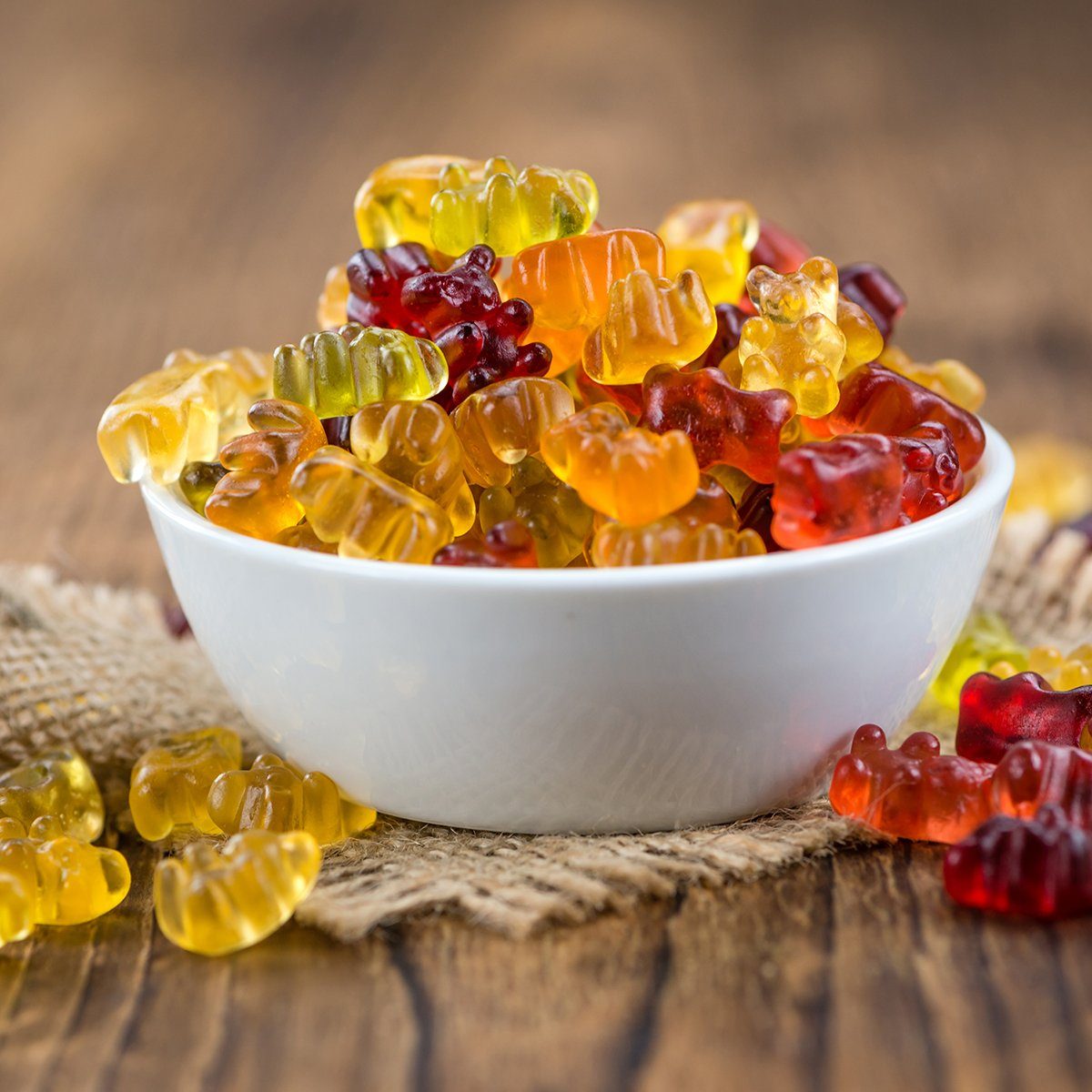
Fruit snacks and cars are coated in the same wax
Carnauba wax, the substance that gives gummy bears their trademark gloss, is also used to shine up cars, shoes, surf boards and floors. But don’t worry—it’s derived from the leaves of palm trees and is still fine to eat.
Every candy lover should know these facts about jelly beans!
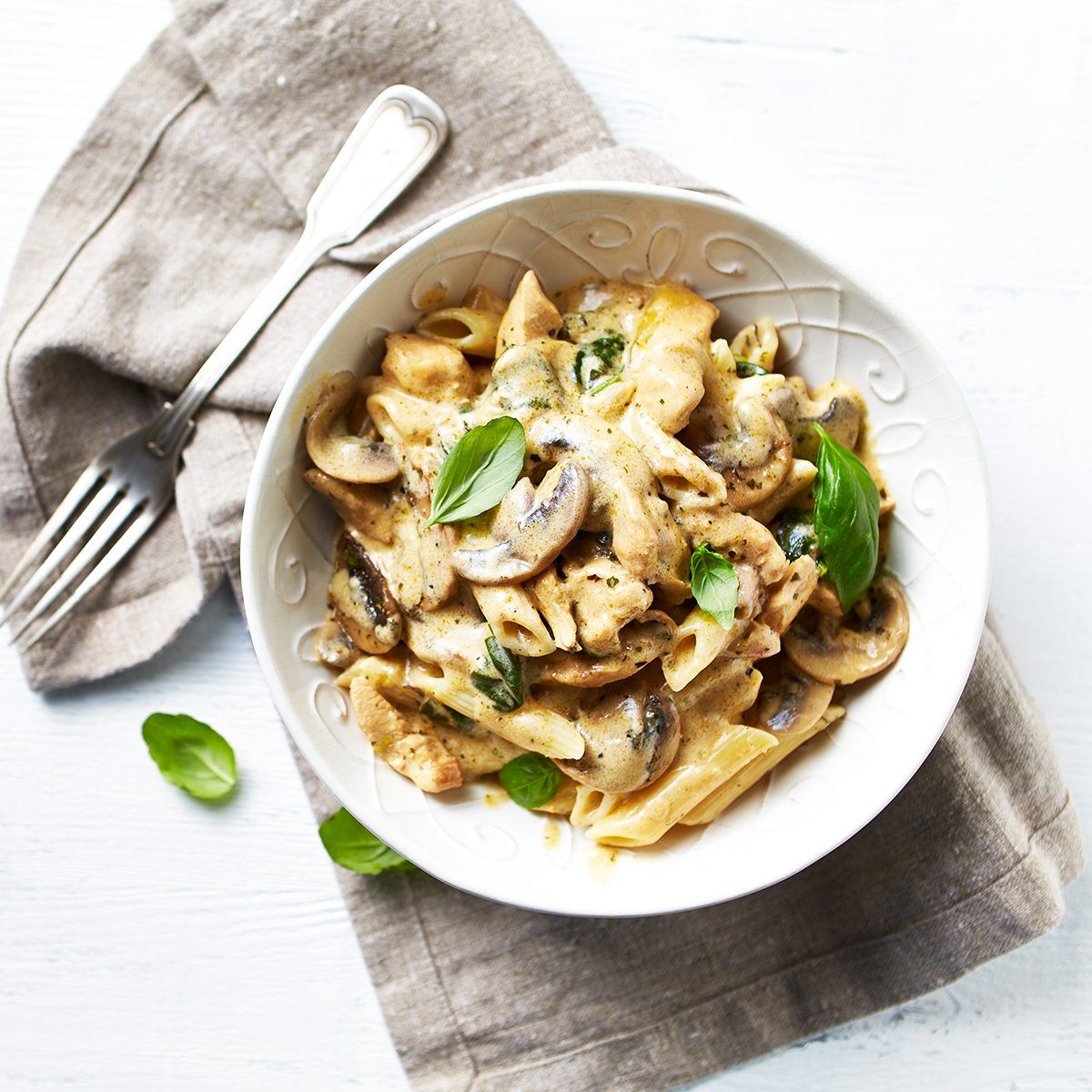
Mushrooms are pretty much impossible to overcook
We’re pretty big fans of mushrooms, and one big reason why is because they’re pretty hard to mess up. Their cell walls contain a special polymer that’s heat-stable and ensures a tender taste, so they’re not liable to overcook.
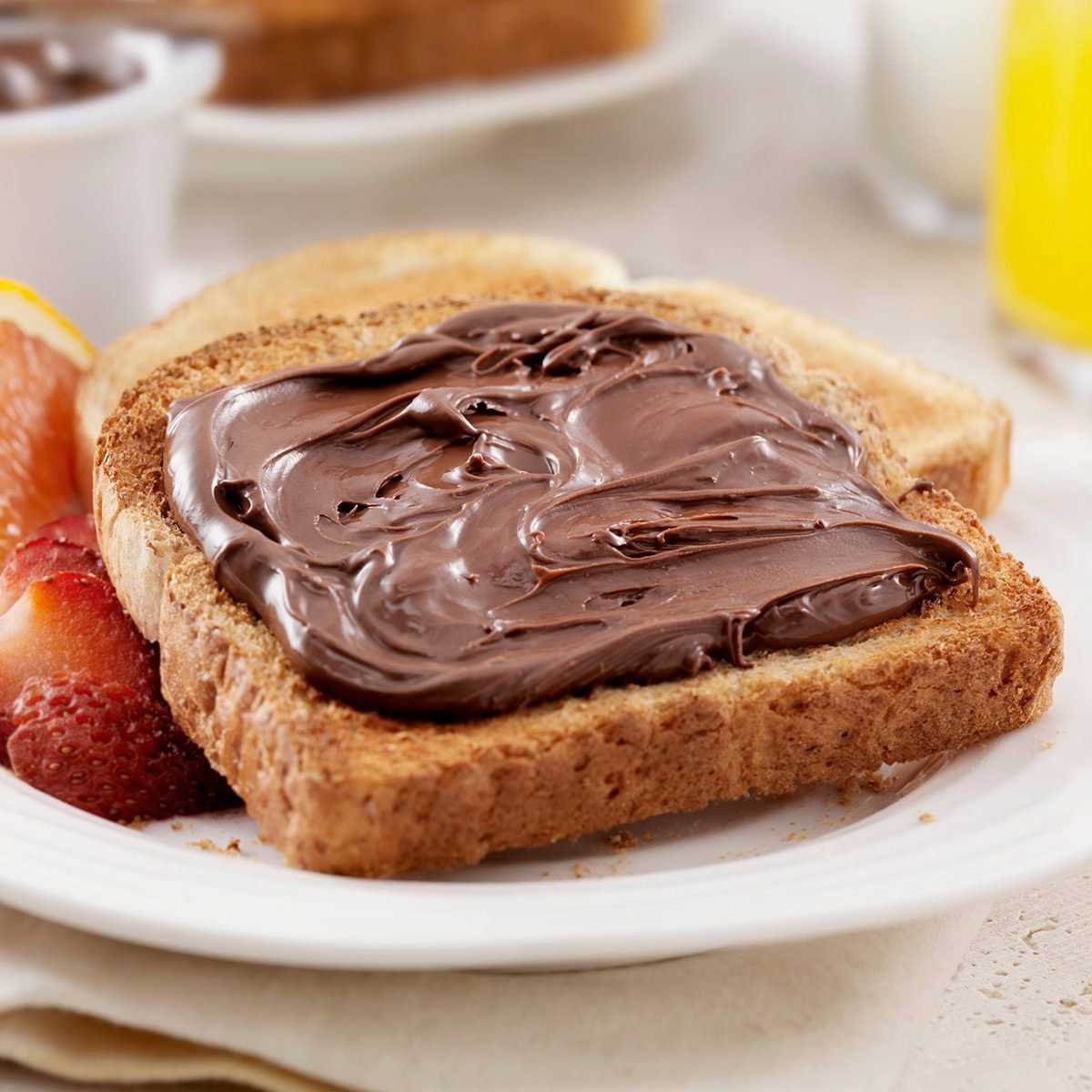
Nutella uses 25 per cent of the world’s hazelnuts
During the unusually small hazelnut crop of 2014, the world was nearly faced with a horrifying result: a Nutella shortage. That’s because Nutella consumes a considerable percentage of the world’s hazelnut crop, and each jar of the sweet spread contains about 50 hazelnuts.
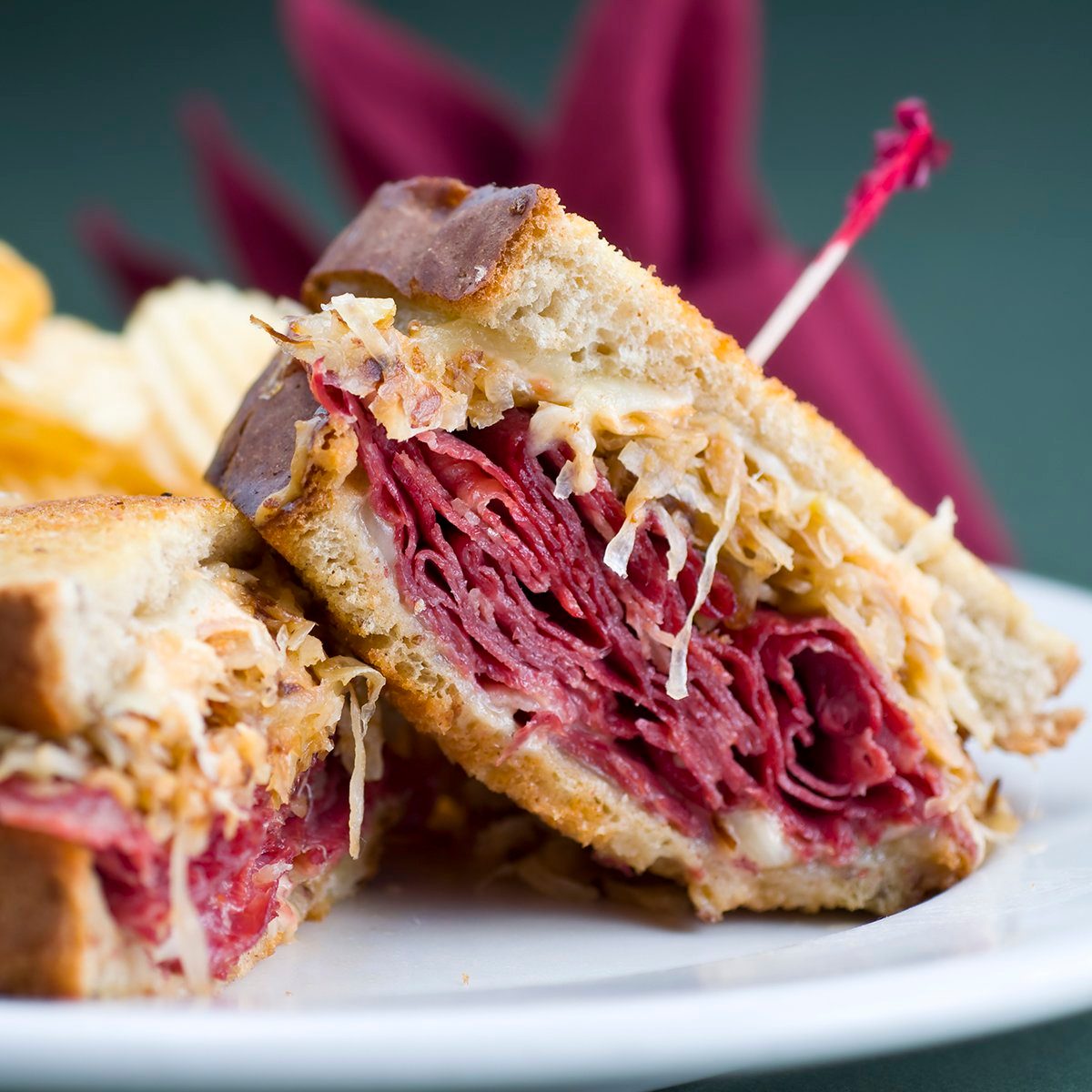
A corned beef sandwich was smuggled into space
NASA is notoriously strict about precisely what items are allowed to make the trip into space—so needless to say, chaos ensued when John Young, the commander of the first ever space shuttle mission, smuggled a corned beef sandwich into his pocket before launching in 1965. The incident even sparked a review by the US House of Representatives’ Committee on Appropriations.
Learn the fascinating history of eggs Benedict!
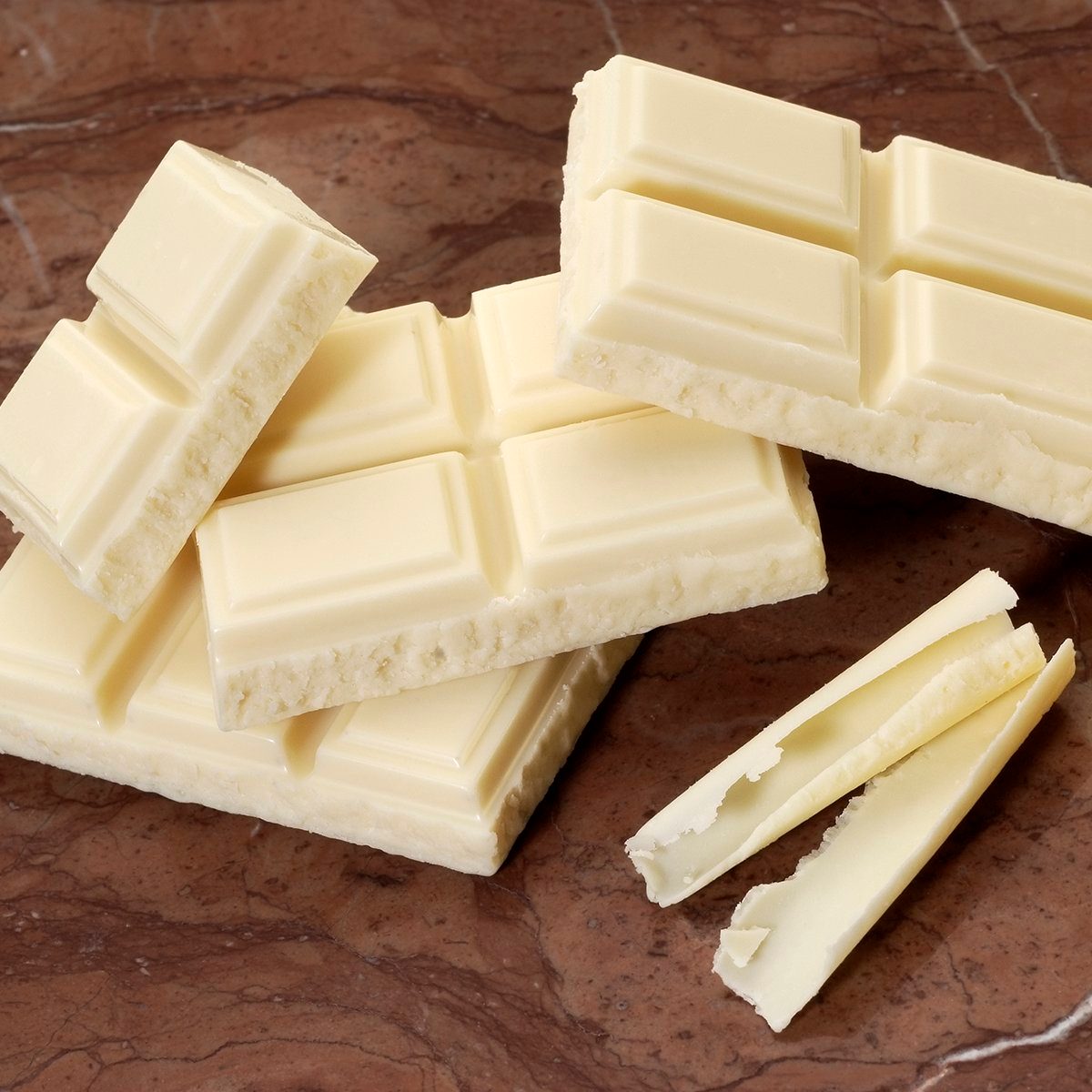
White chocolate isn’t actually chocolate
Despite its name, white chocolate doesn’t, in fact, contain any chocolate solids. Instead, it’s a mix of sugar, cocoa butter, milk products, vanilla and lecithin. Technically, all true chocolate is derived from cocoa beans, which are made into chocolate nibs, and further refined into chocolate liqueur.
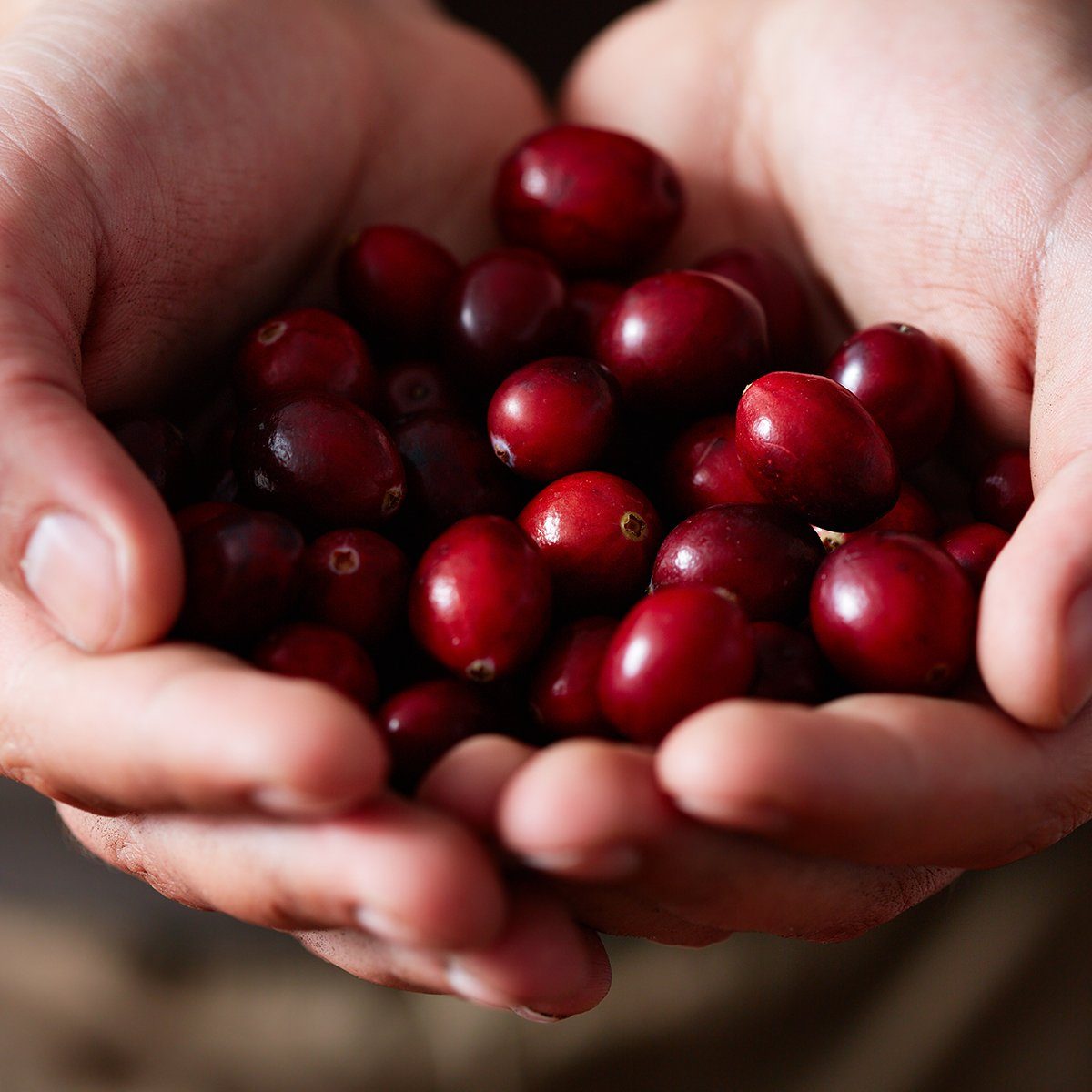
Ripe cranberries bounce like bouncy balls
The easiest way to tell if a bunch of cranberries is truly ripe is to toss one on the floor. Seriously. Ripe dry-harvested cranberries are known to bounce back like a rubber ball!
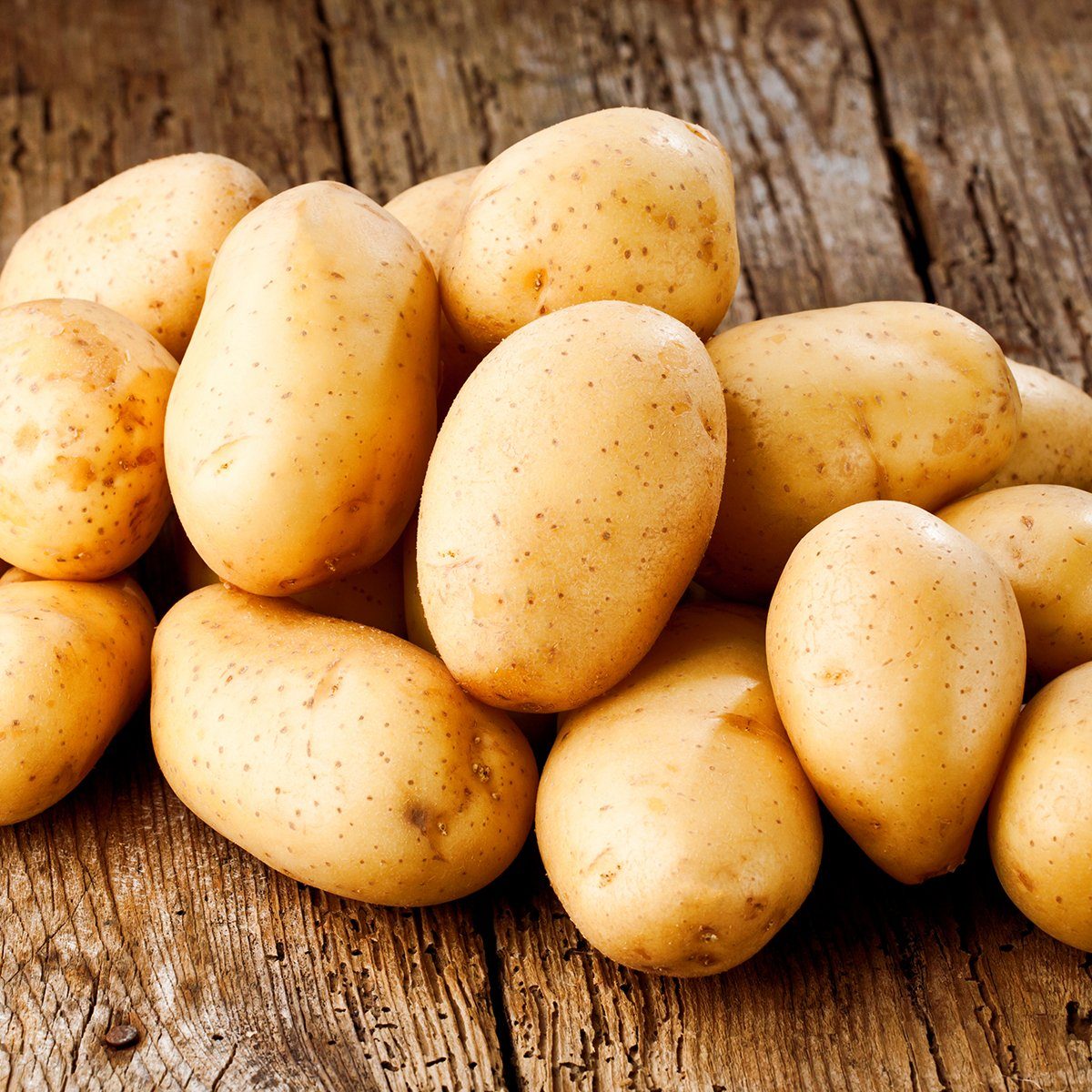
Potatoes can improve Wi-fi signals
When Boeing was testing wireless internet on its planes in 2012, it filled its planes with piles of potatoes. That’s because potatoes have a high water content and chemical makeup, so they reflect and absorb wireless signals similarly to humans, and thus were able to test for weak spots in the signal.
Here are more food facts that will change the way you eat.